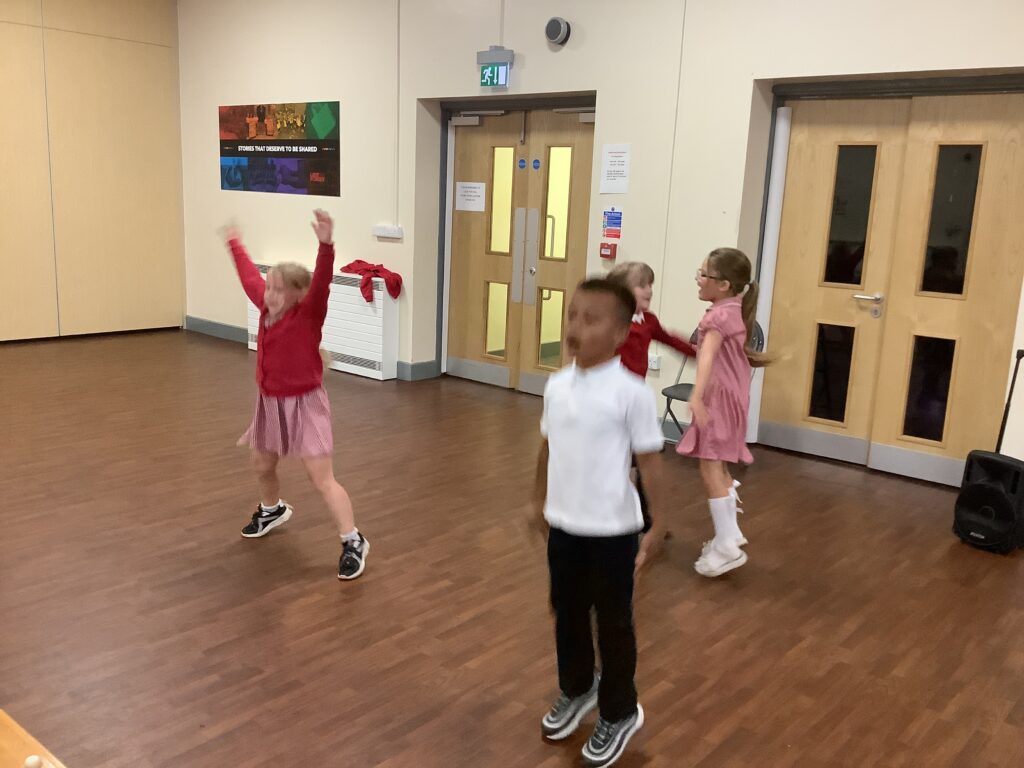
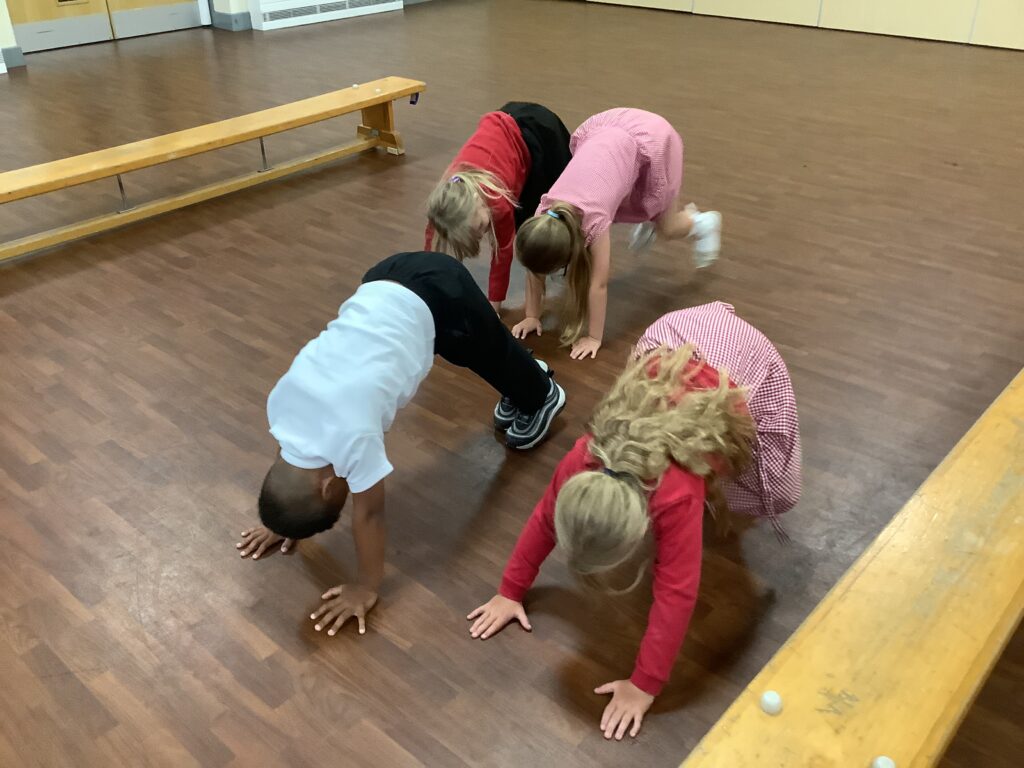
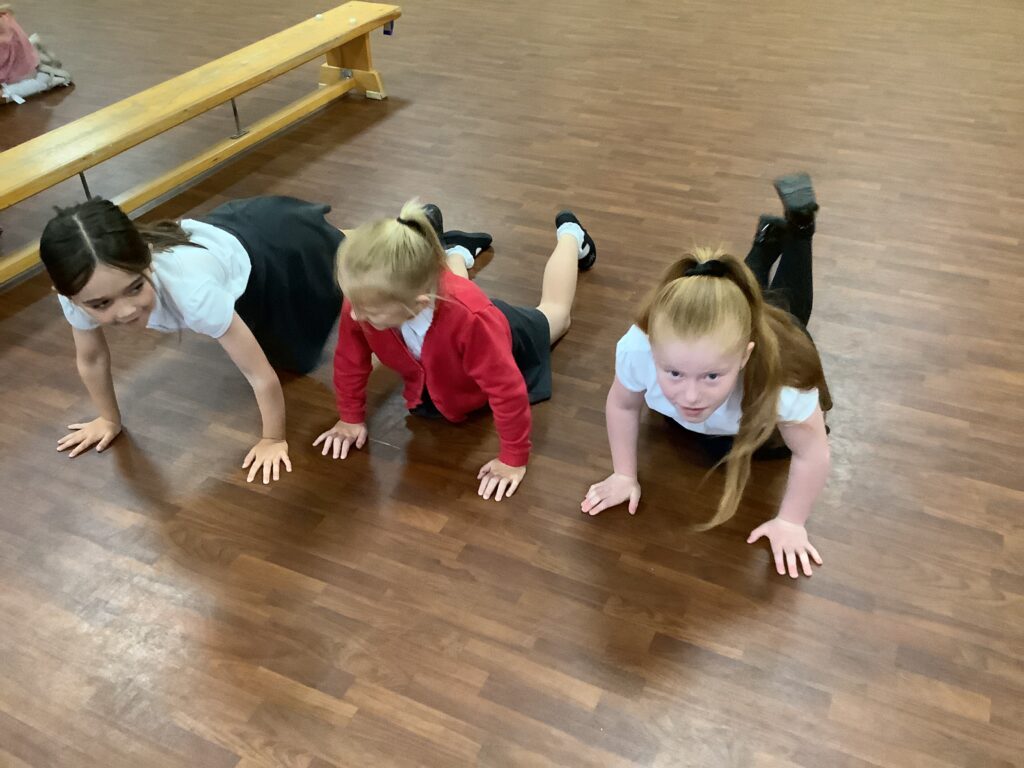
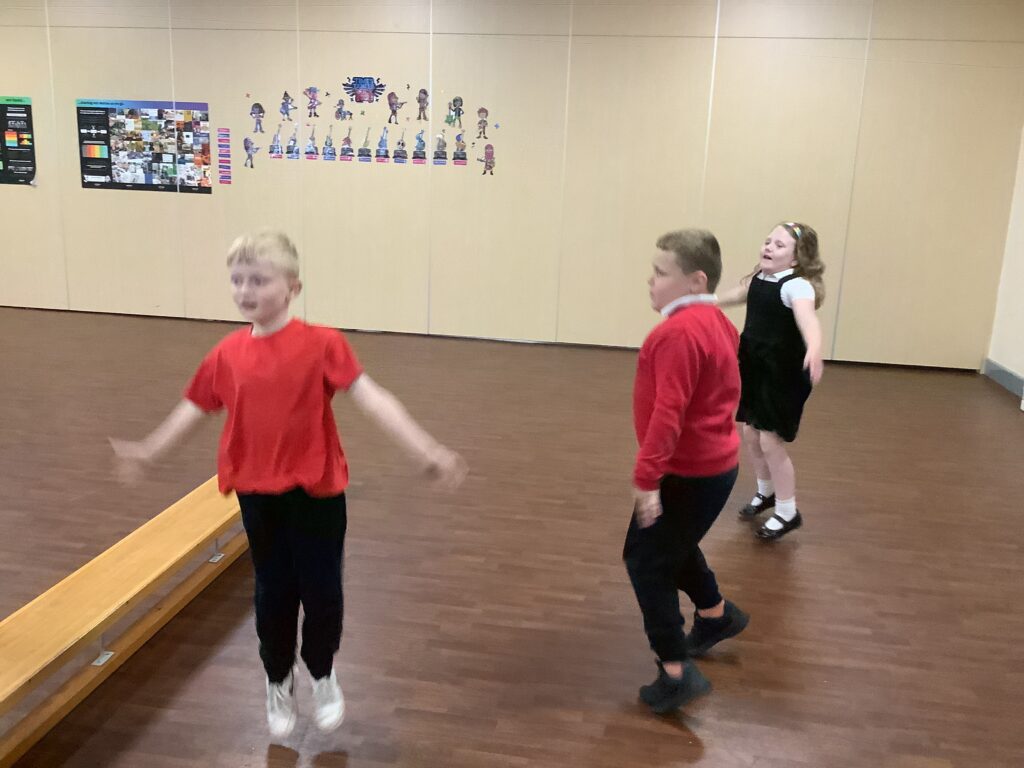
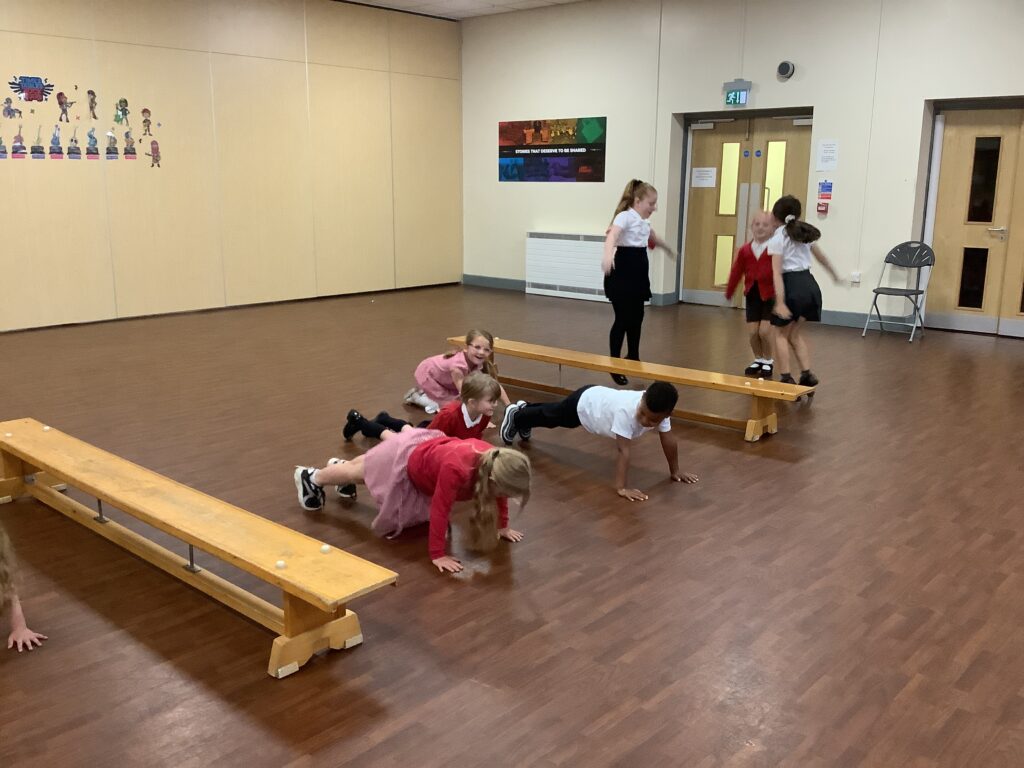
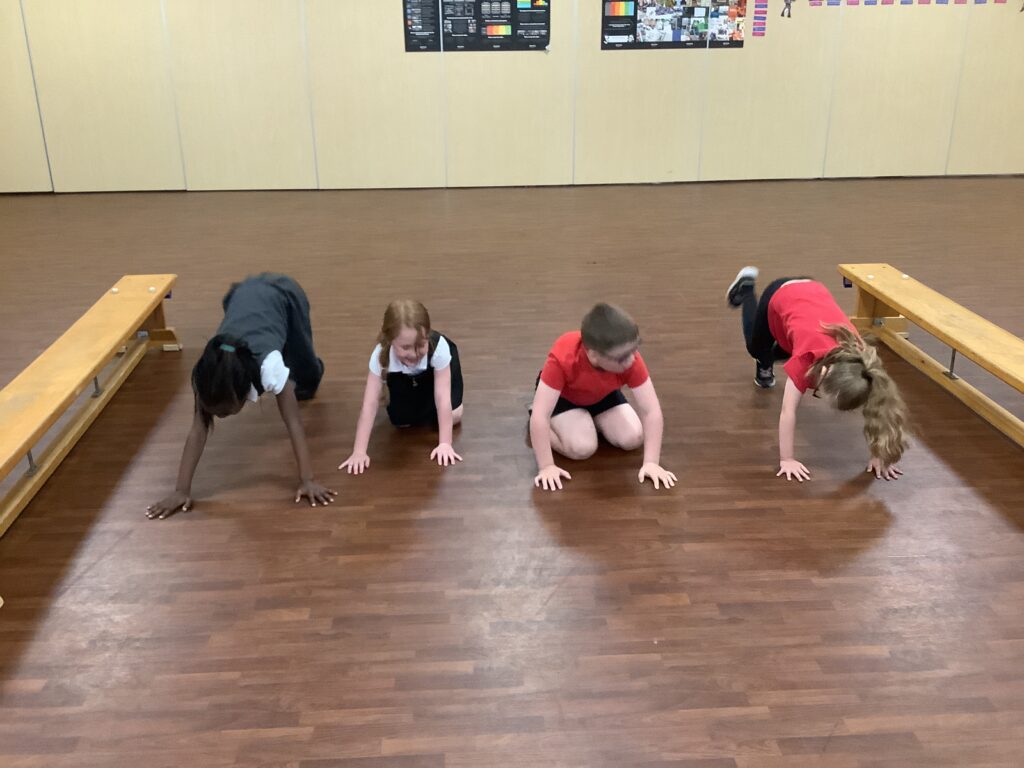
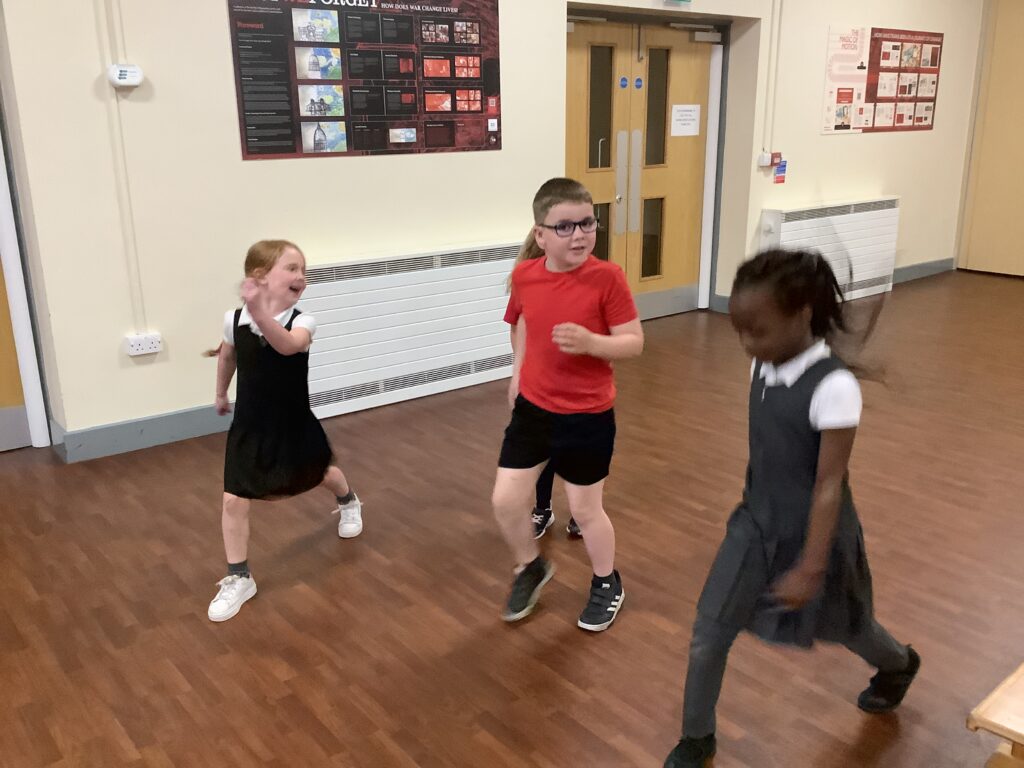
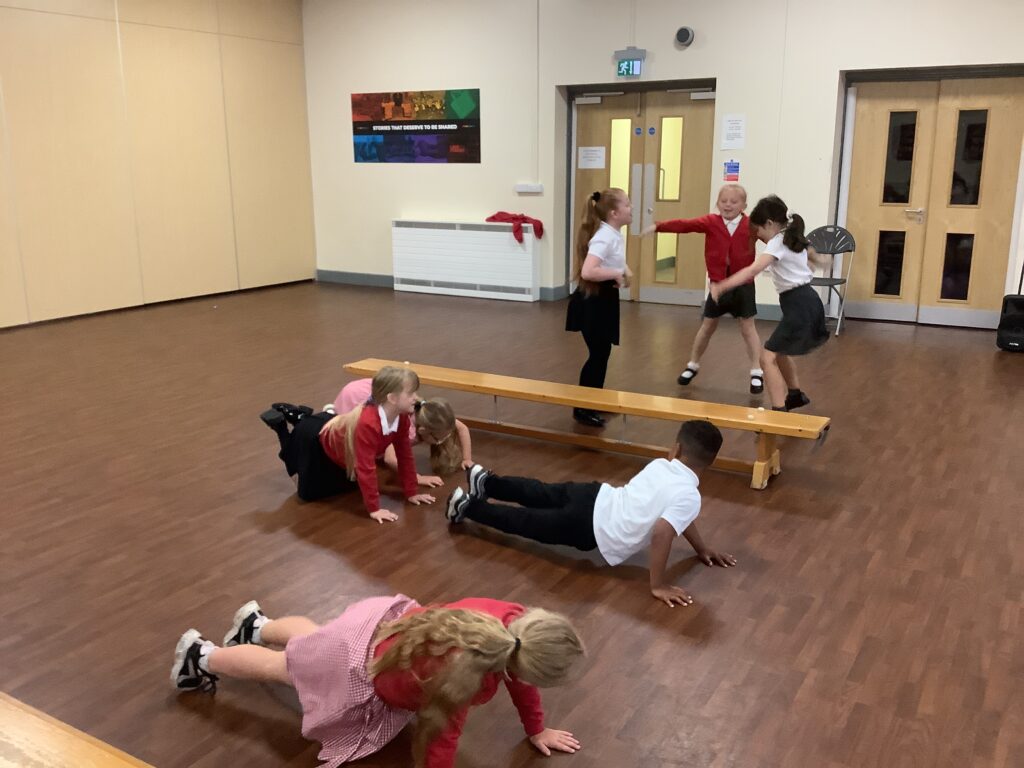








In arithmetic, we have worked hard to ensure we are using the squares in our maths books accurately, ensuring there is one number in each square. We have also worked hard to ensure all of our numbers are formed correctly, a ruler is used to draw any lines and we use appropriate spaces between calculations so that we can read our work properly and it is presented to the best of our ability. We focused on addition of 3 digit numbers with exchanging and some of us were even able to move on to four and five digit numbers!
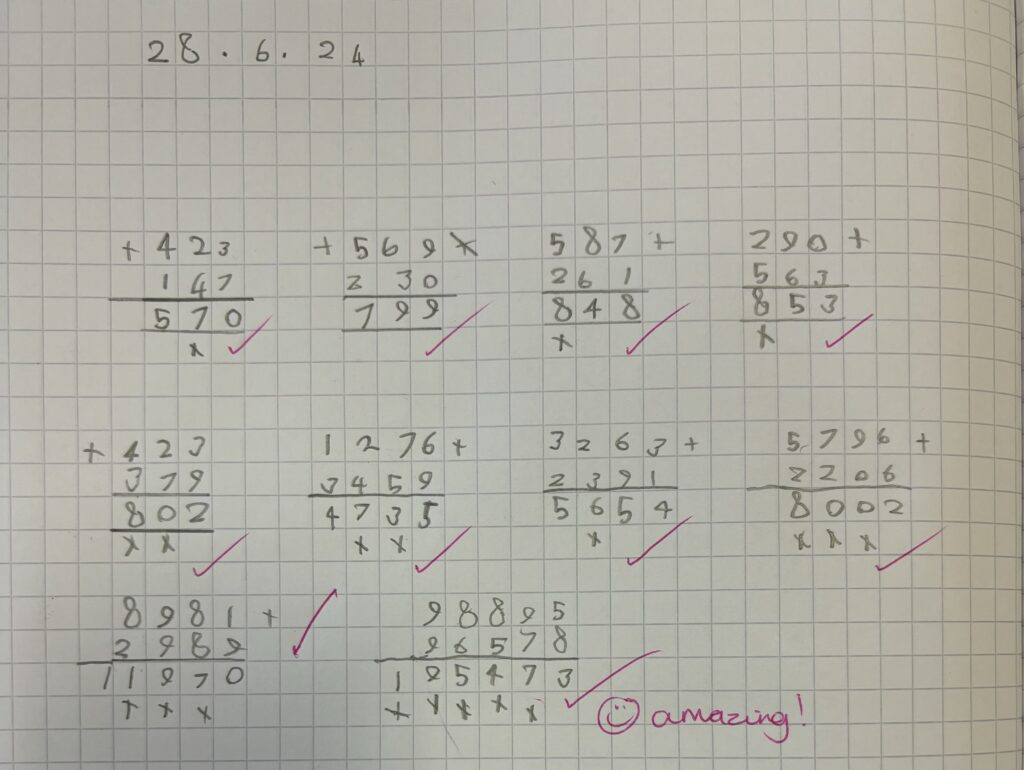
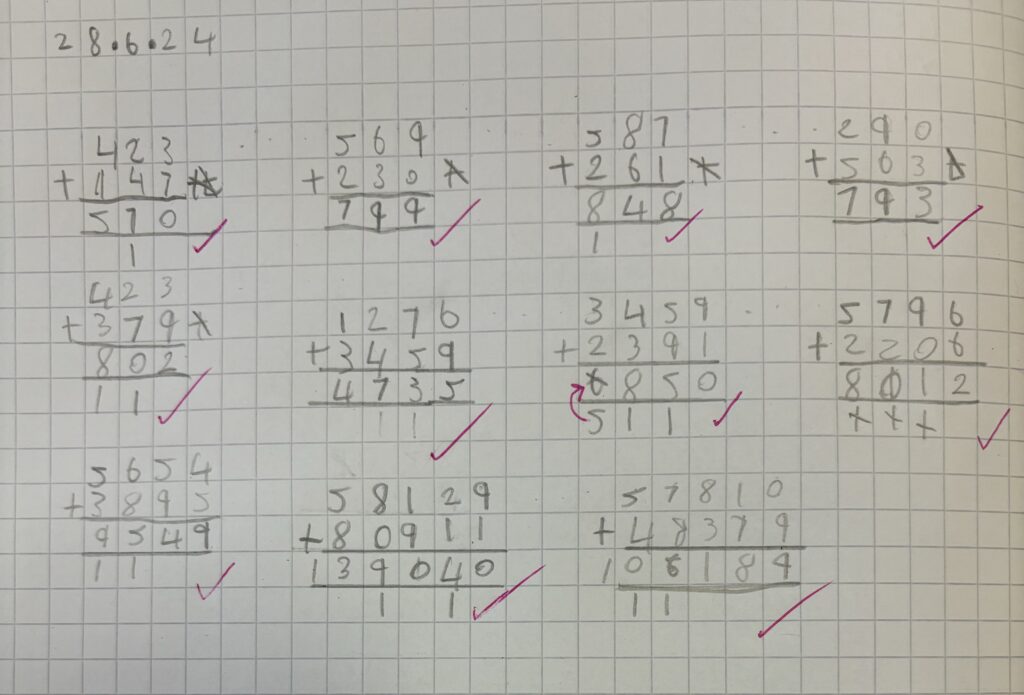
Today, Crew Hamill continued with their new writing genre: a character description. In this lesson we identified as much information about Augustus Gloop in order to be able to write a description about his appearance and his personality/attitude. We started our BBK by writing down everything we already knew about him, recalling information from our reading lessons (in which we focused on a poem all about him) and from our previous writing lessons (in which we wrote a narrative based on a short section of the film). We then watched some clips of Augustus from the film and used the to add further information to our BBK. Finally, we looked at some different images of Augustus at different points throughout the film and really drew our attention to his appearance so that we could add even more information and create a bank of vocabulary about his key features: eyes, mouth, hair and clothes. We are going to use all of this information in our writing next week to help us describe him in detail!
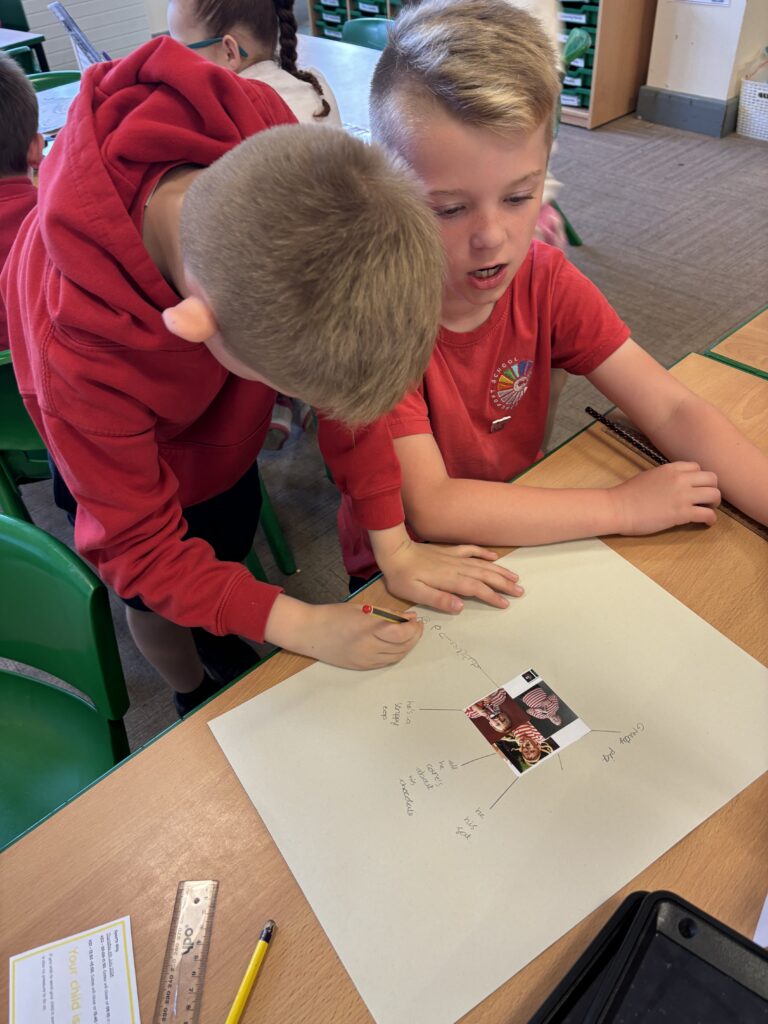
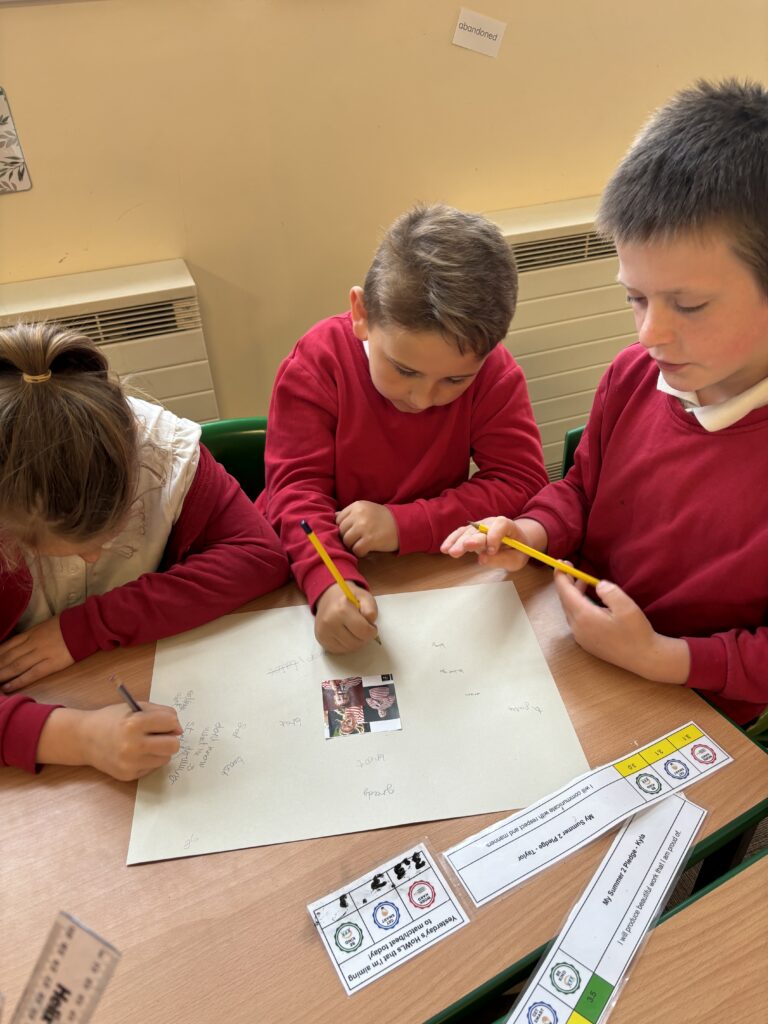
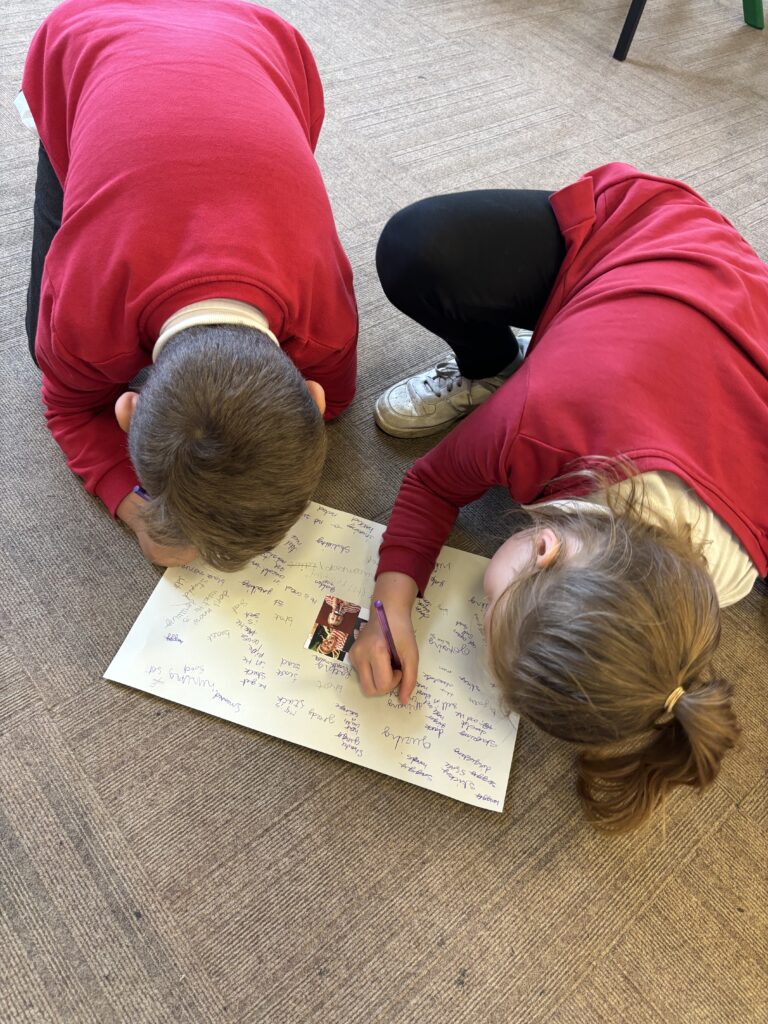
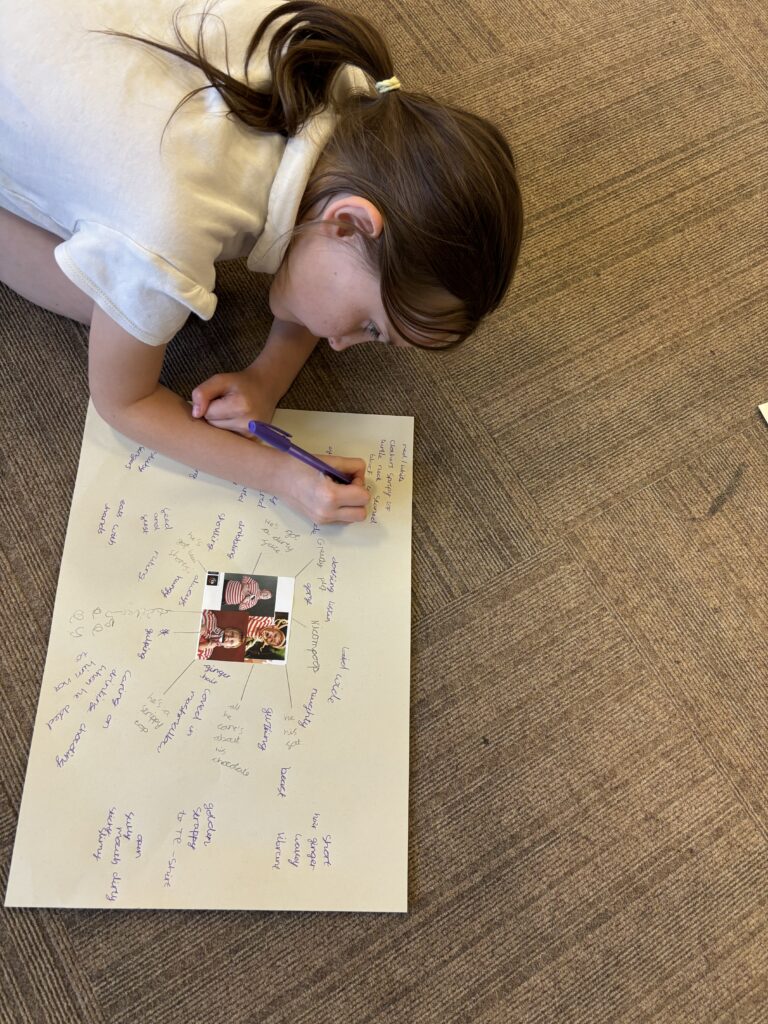
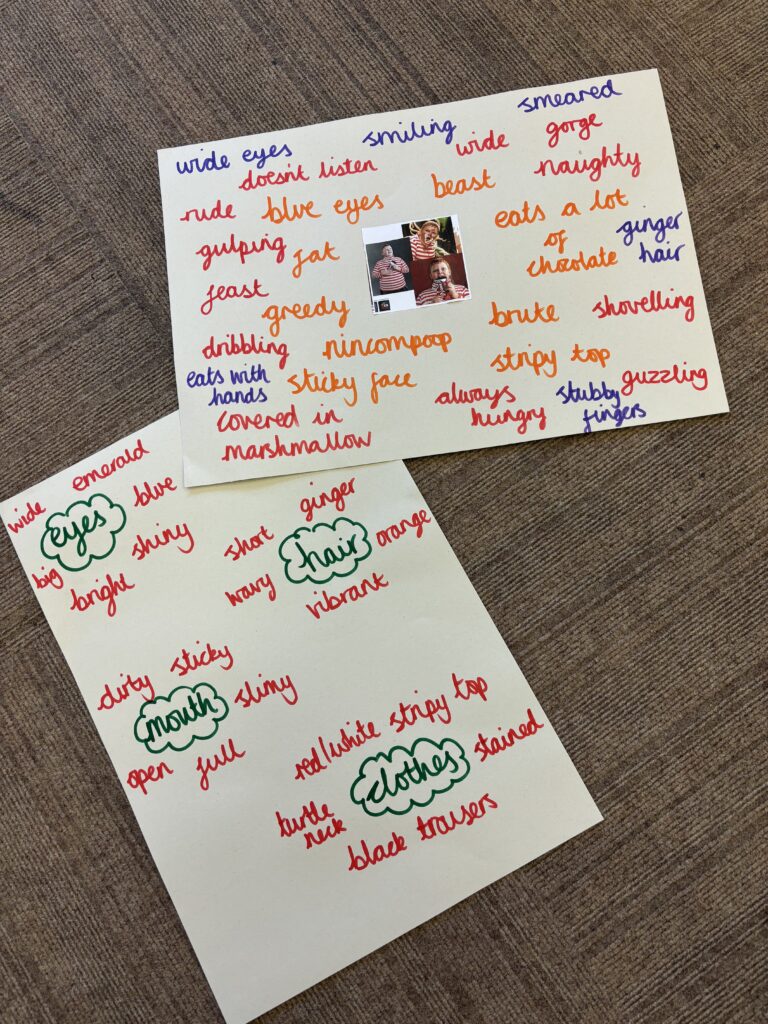
This week, Crew Hamill have begun to focus on non-fiction texts in our reading session. We focused on a double page spread from an information book all about the Mayans which links to our expedition. We began by discussion how we knew what this text was going to be about, drawing attention to the title of the double page spread: What happened to the Maya? We then continued with our focus of reading for accuracy and have used our rulers to guide our eyes as to the line we are reading and our fingers to guide to each word. We have practiced reading aloud as well as reading in our heads. Additionally, we have used our text marking skills to identify key vocabulary, key information and things that we find interesting, surprising or a connection to. We tested our recall of the vocabulary we identified by walking around the room and matching our vocabulary words to their definitions. We found some of these a bit tricky but were able to complete this successfully. We have also answered some vocabulary and retrieval questions with our talk partners to delve a little deeper into what we have read.
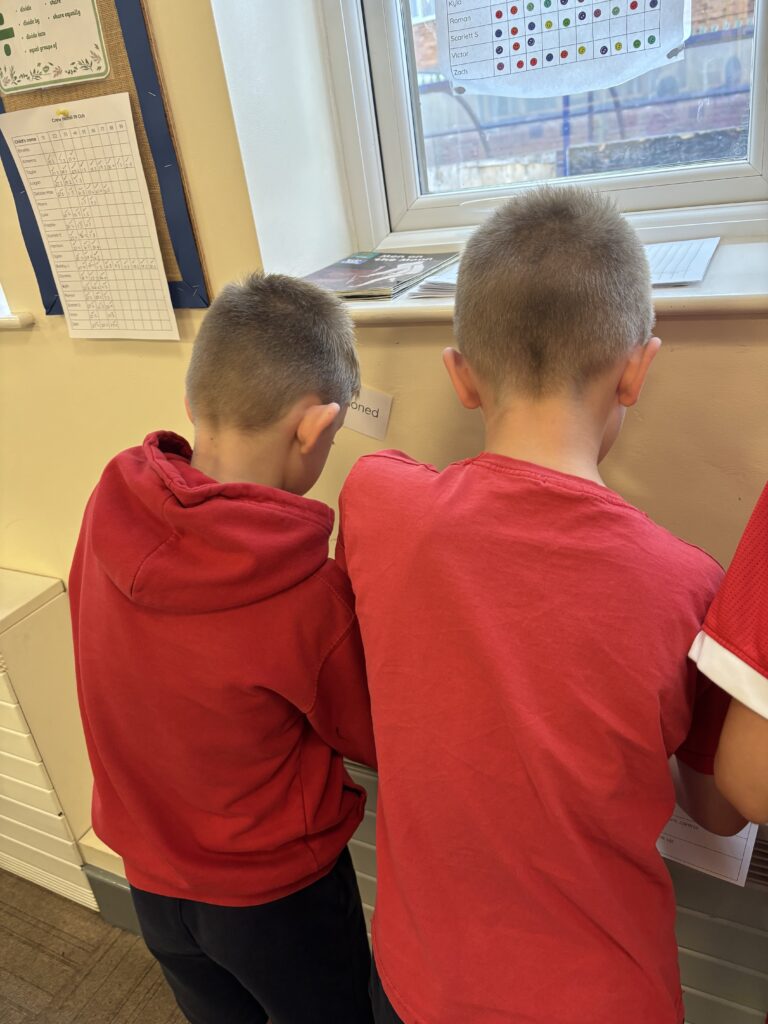
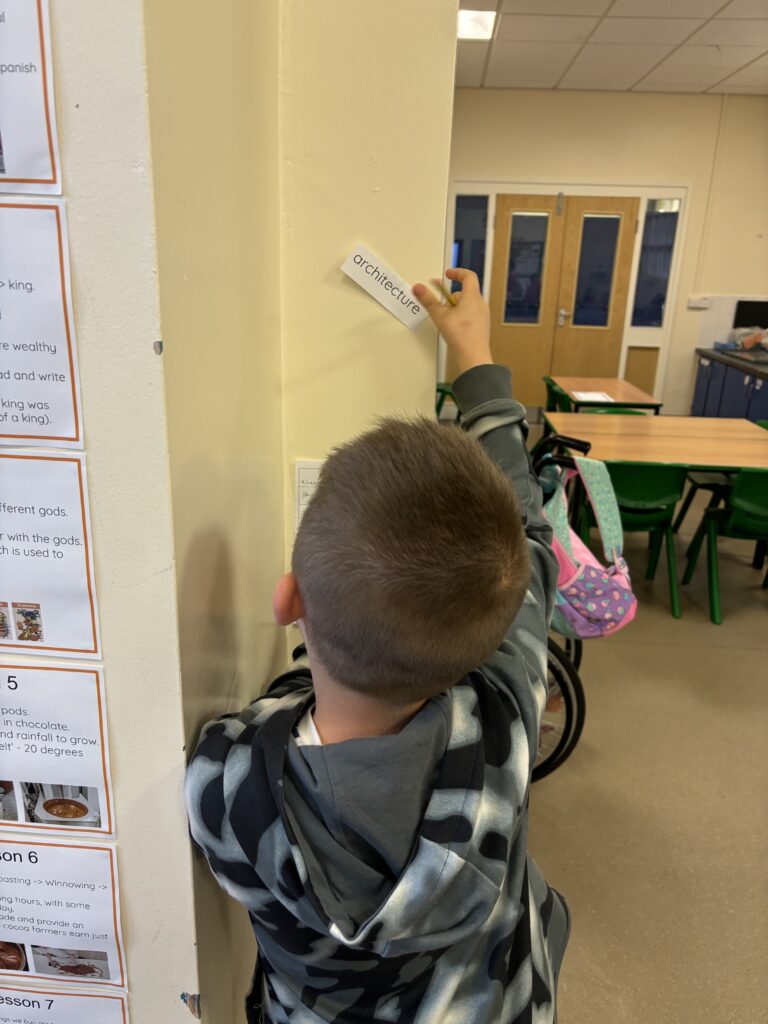
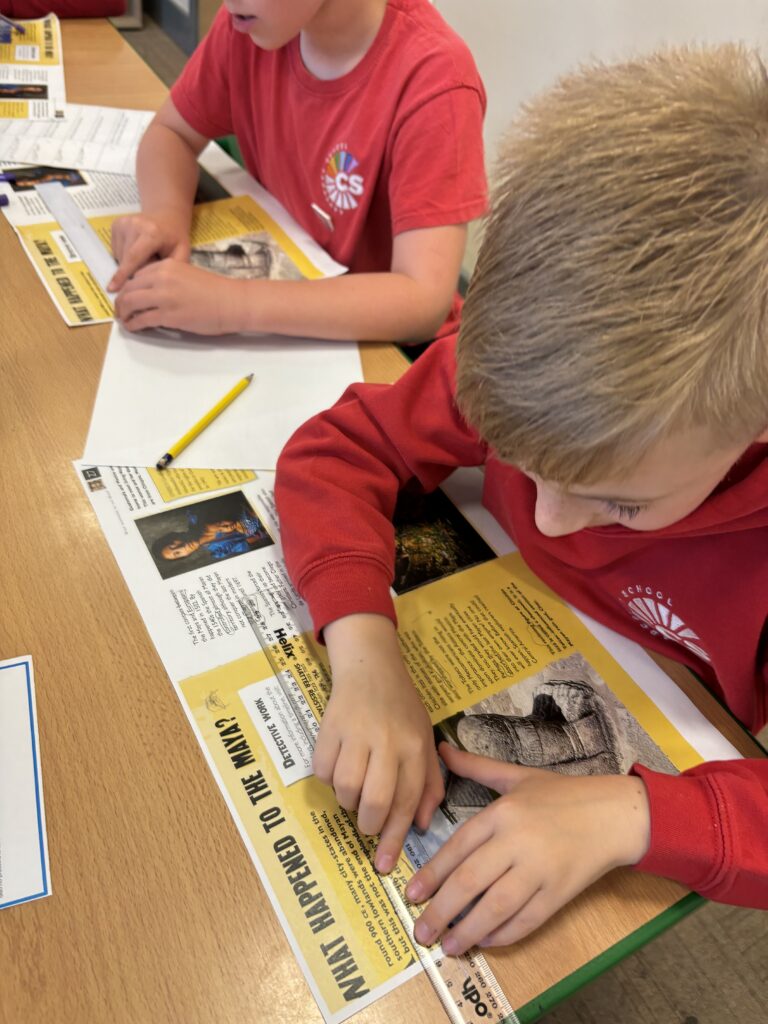
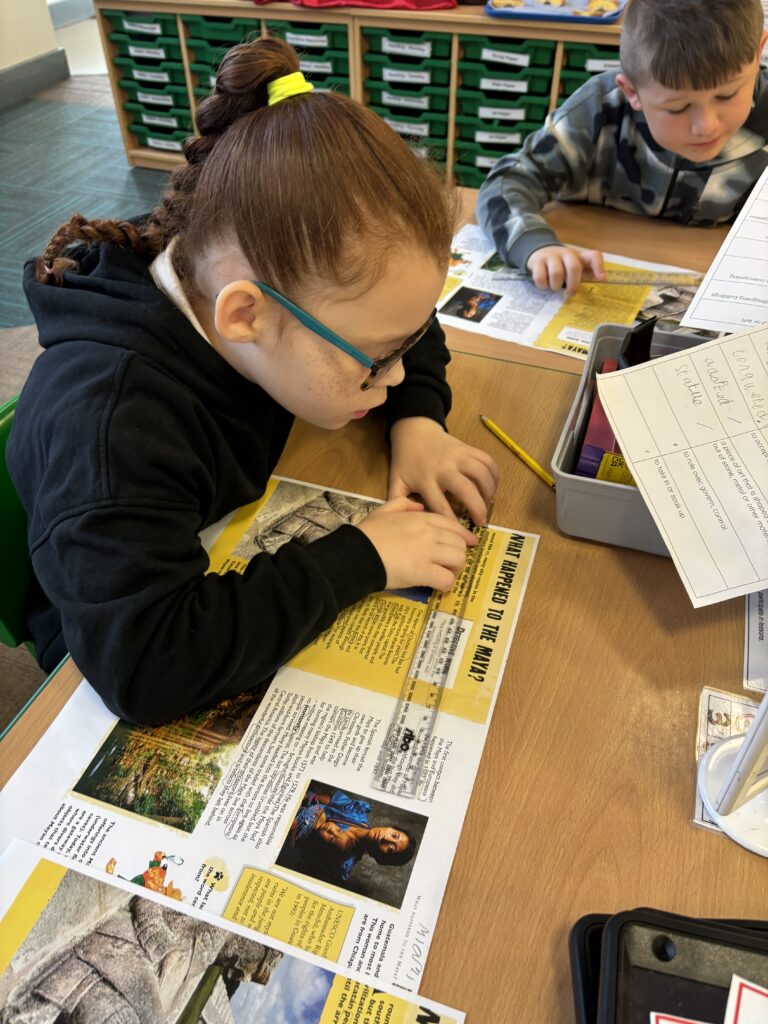
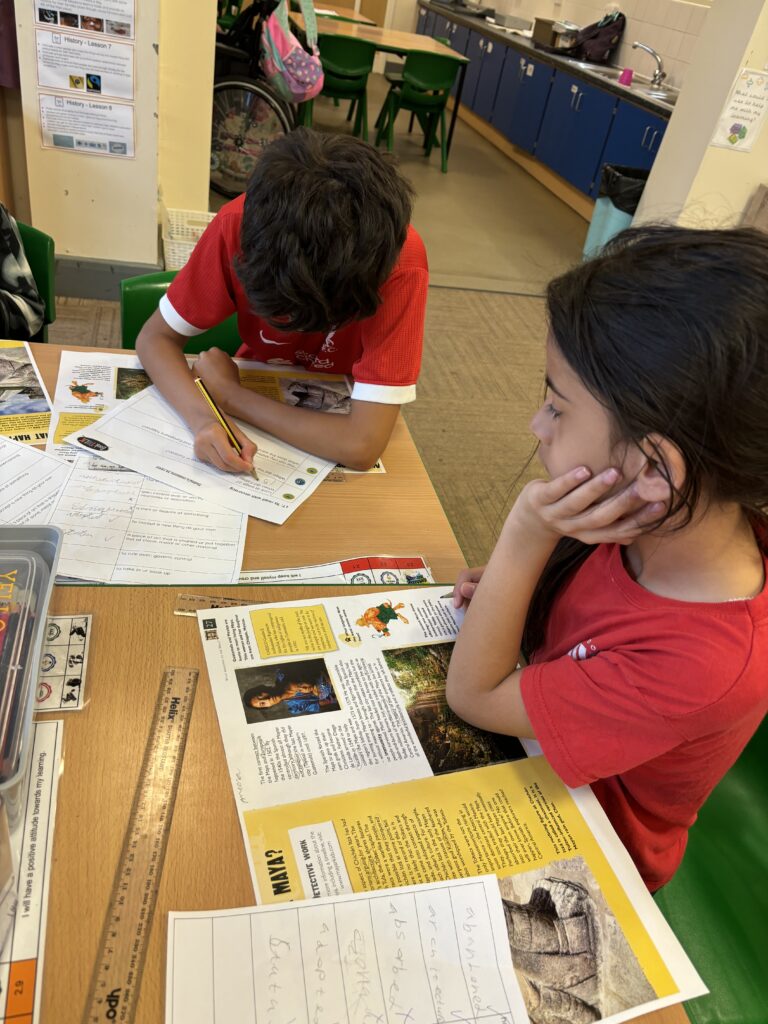
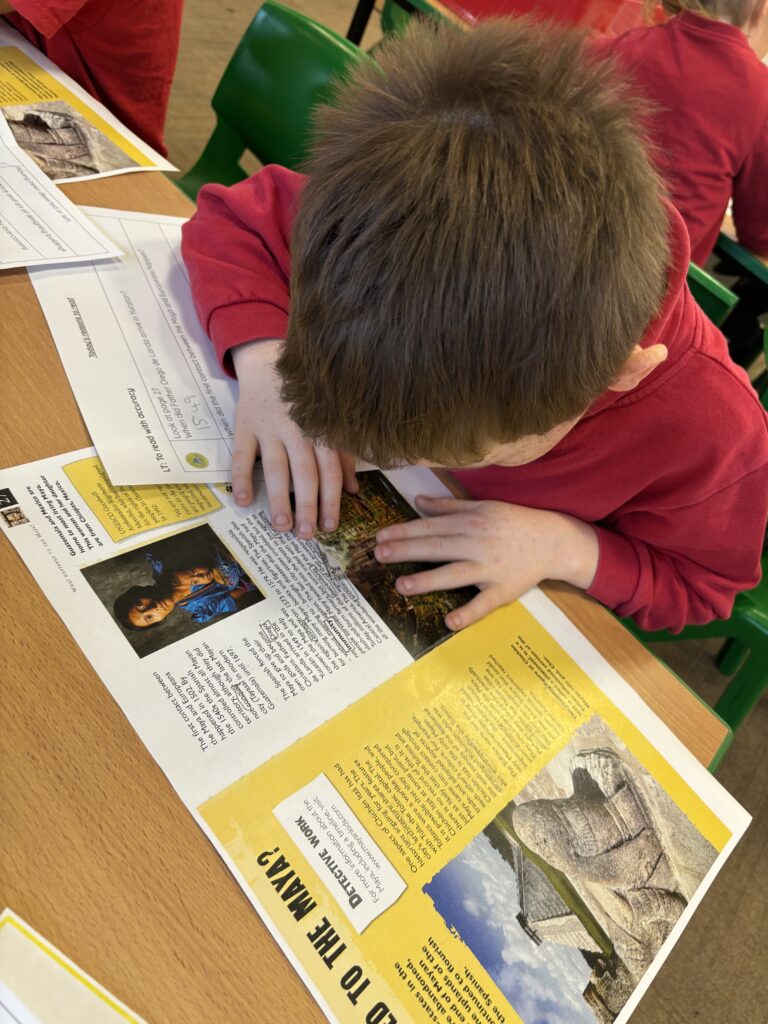
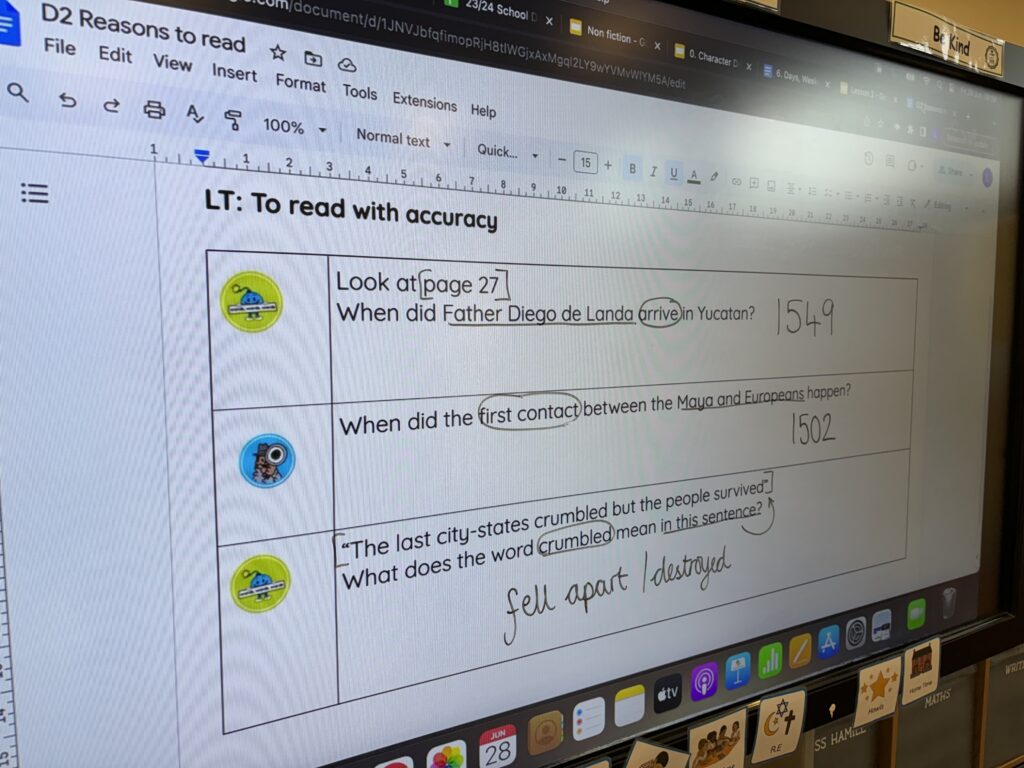
Following on from our colour mixing lesson yesterday we began painting our Rangoli patterns.
We used lots of different colours to make sure they were bright and colourful.
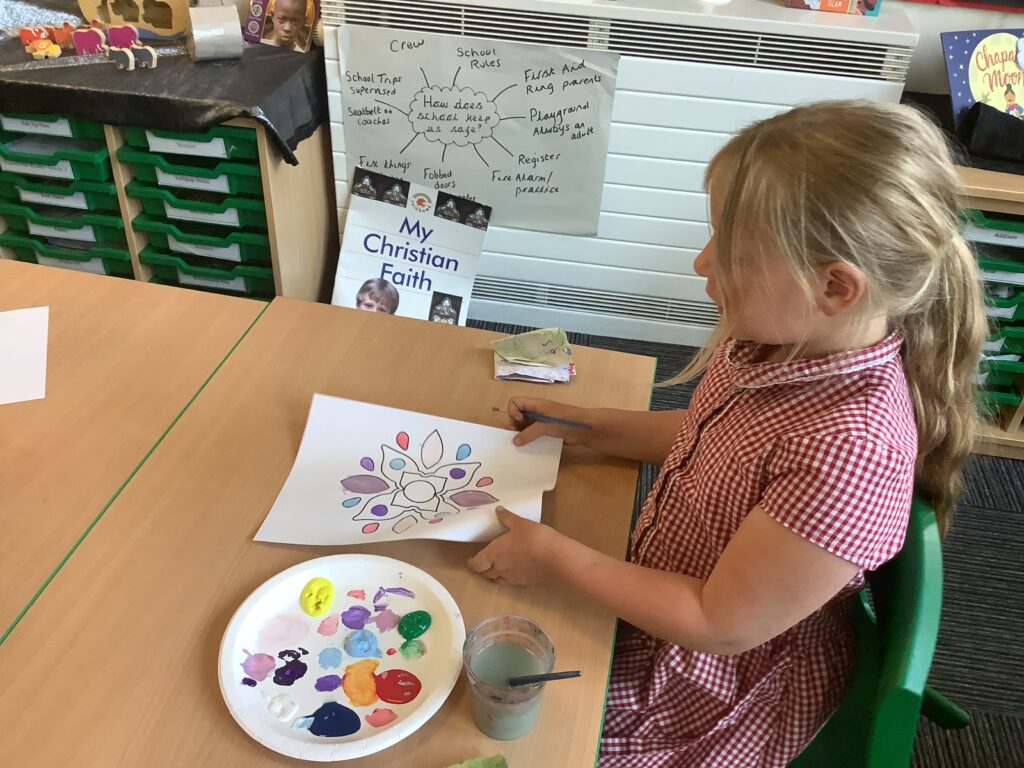
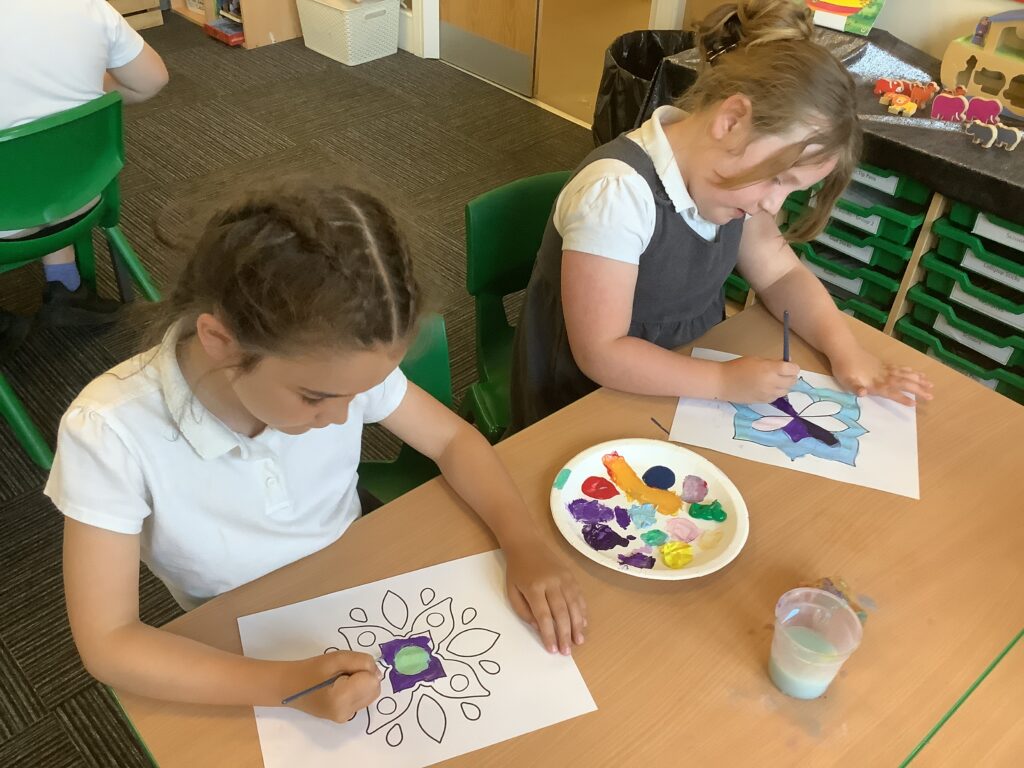
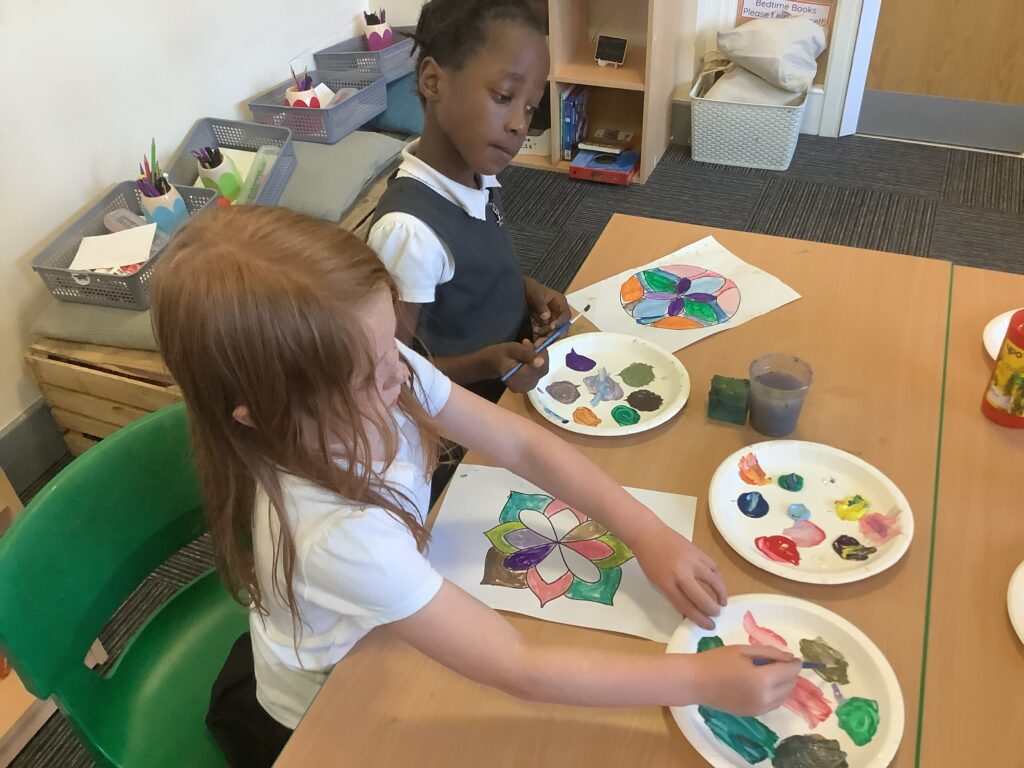
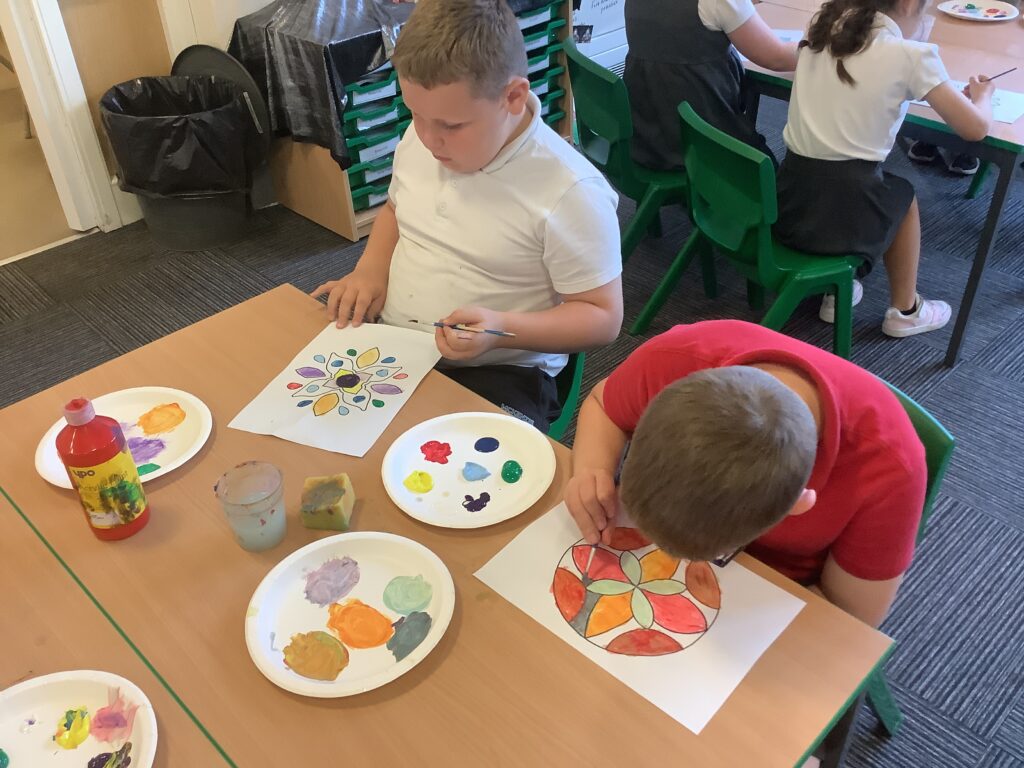
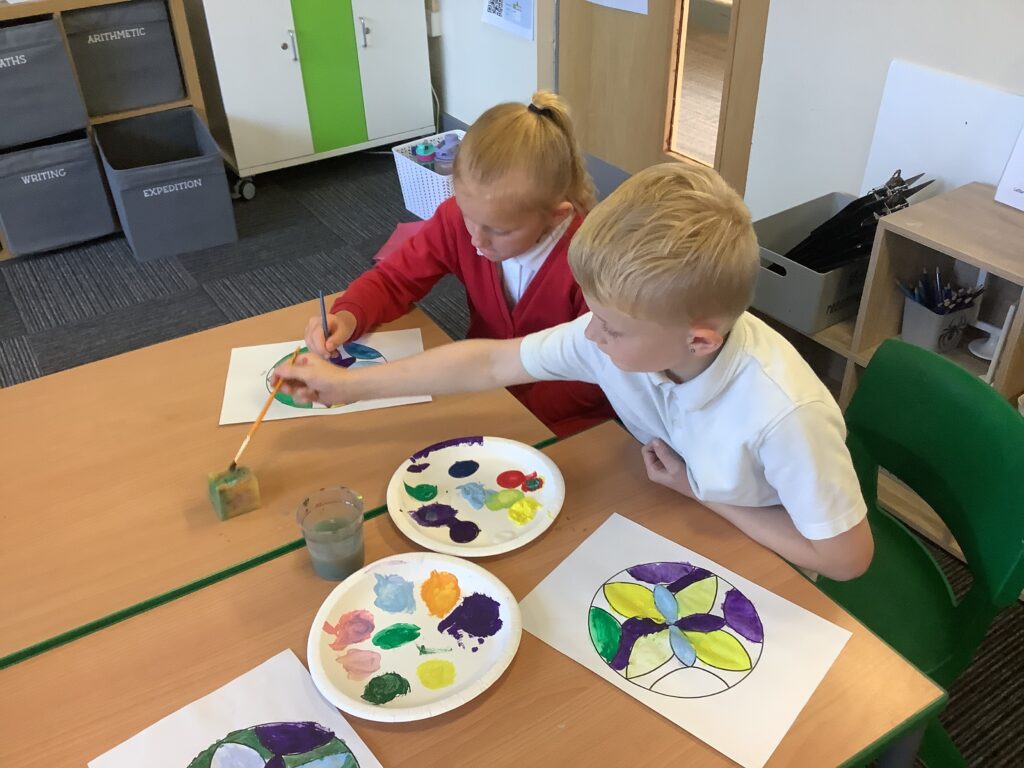
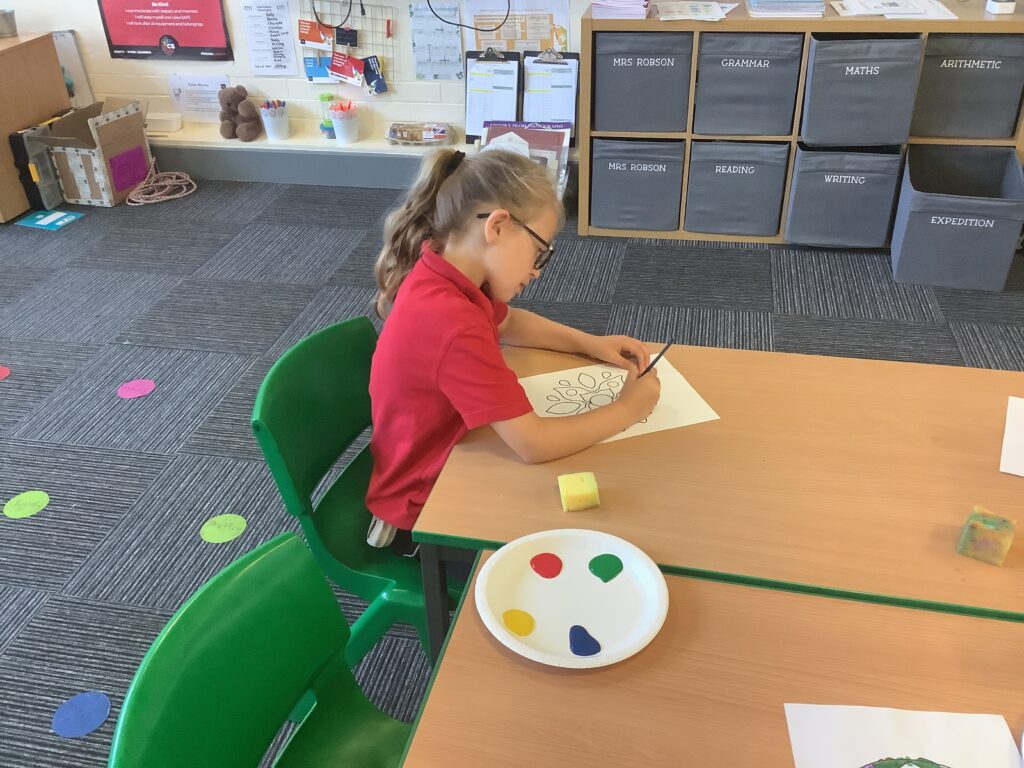
Today we had our final acro & cheer showcase of the year. It really put a smile on all of our faces seeing how far all of the children have come from attending lunch clubs this year. Well done everyone and thank you to Miss Ellie for facilitating it!
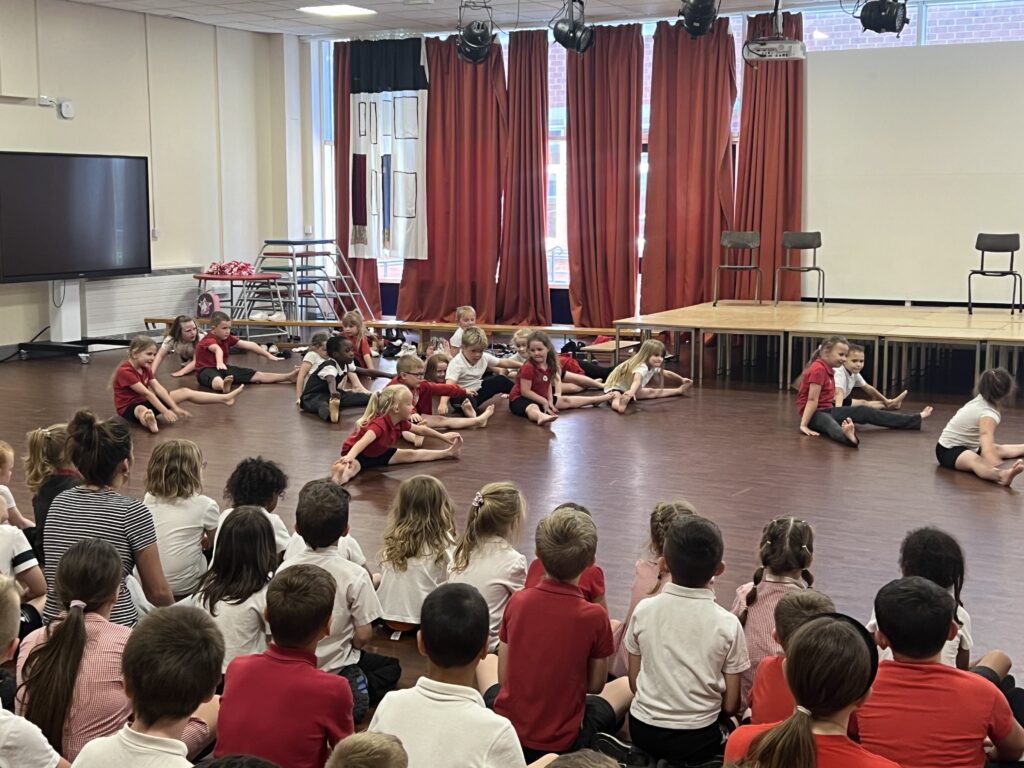
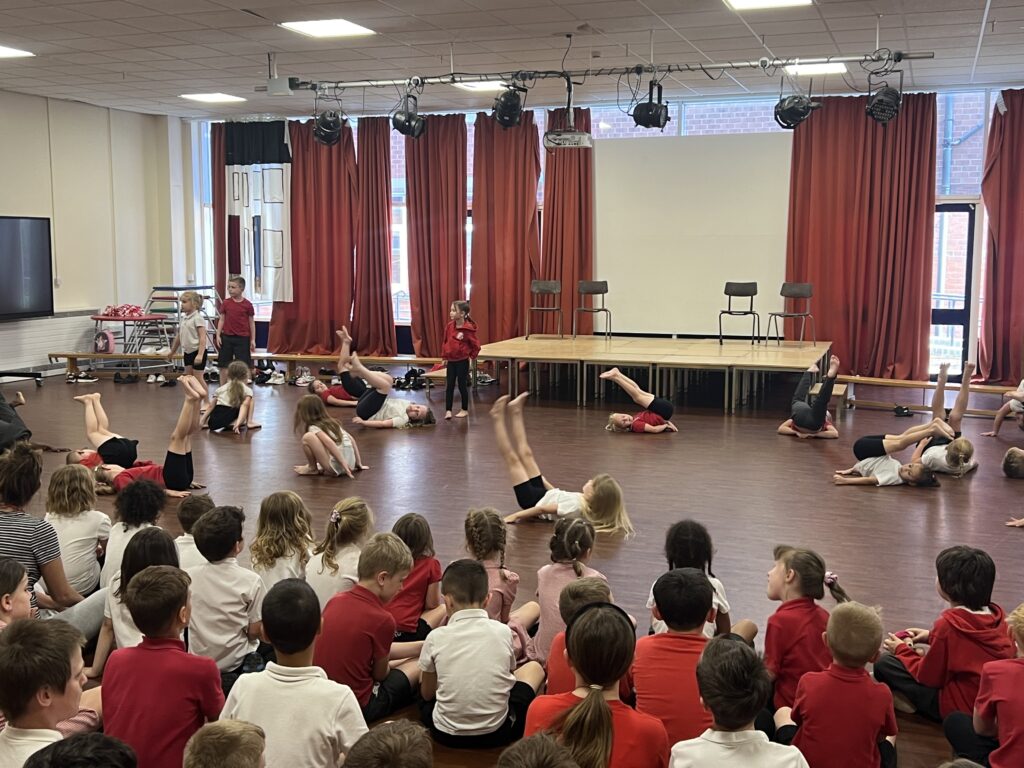
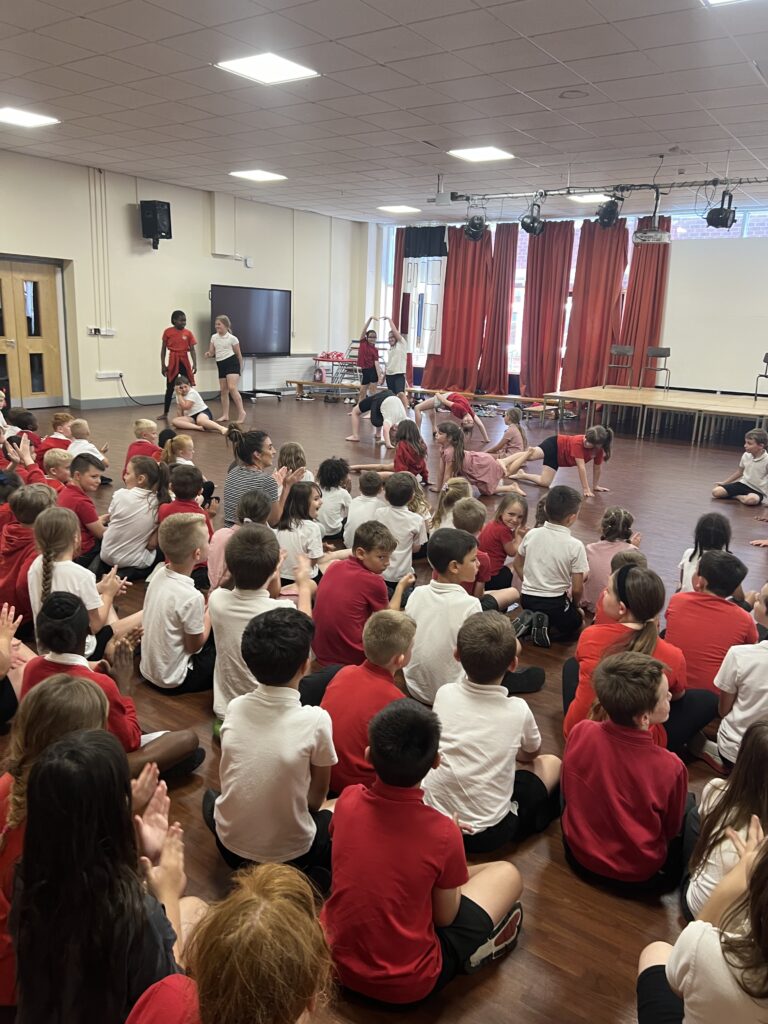
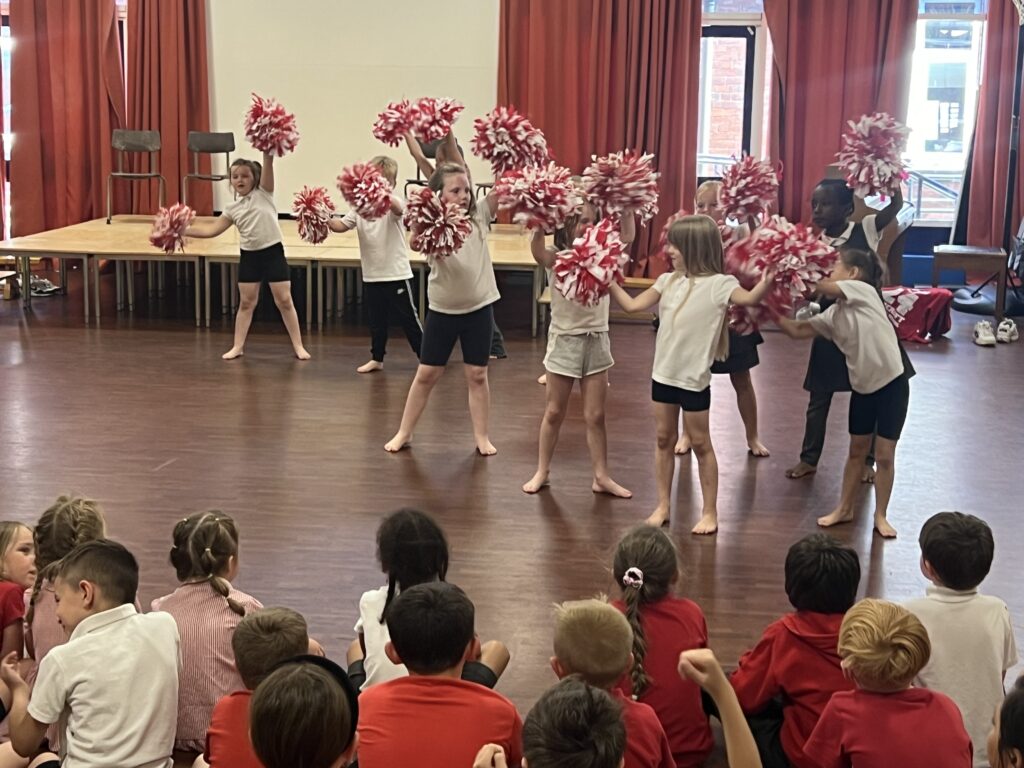
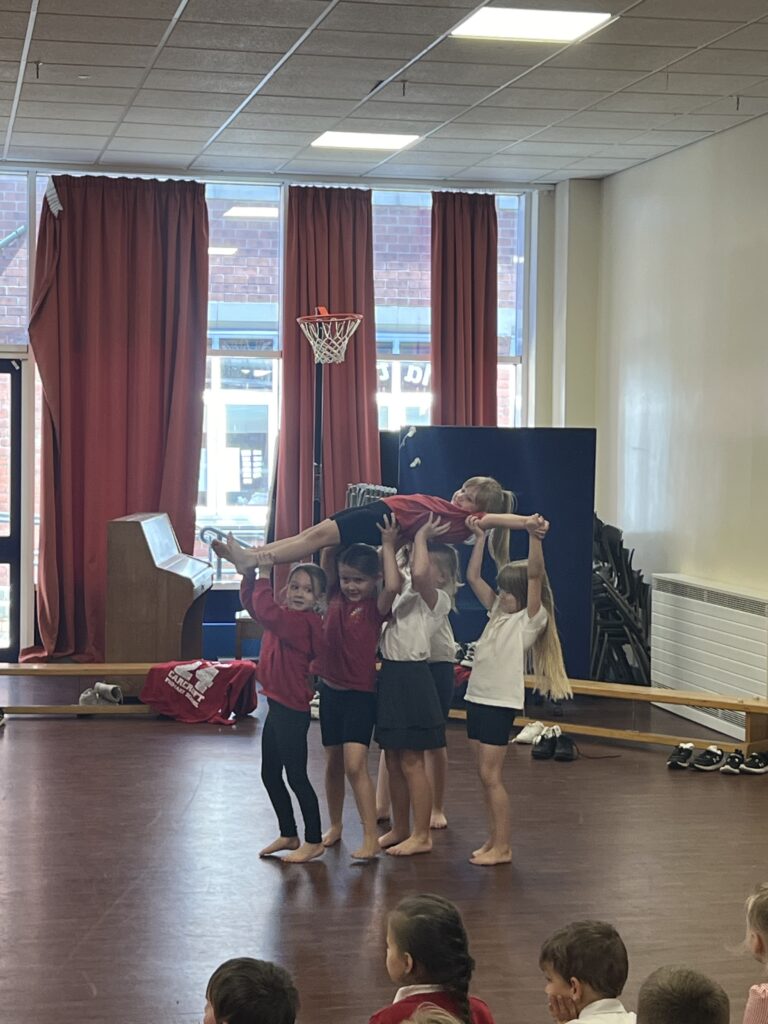
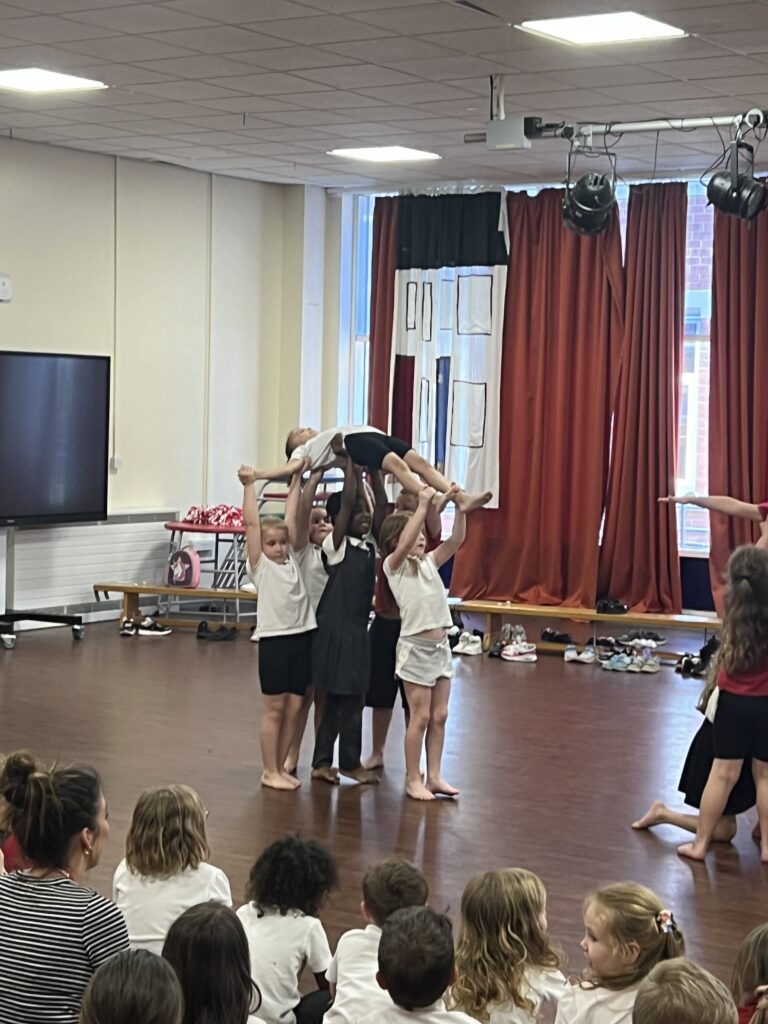
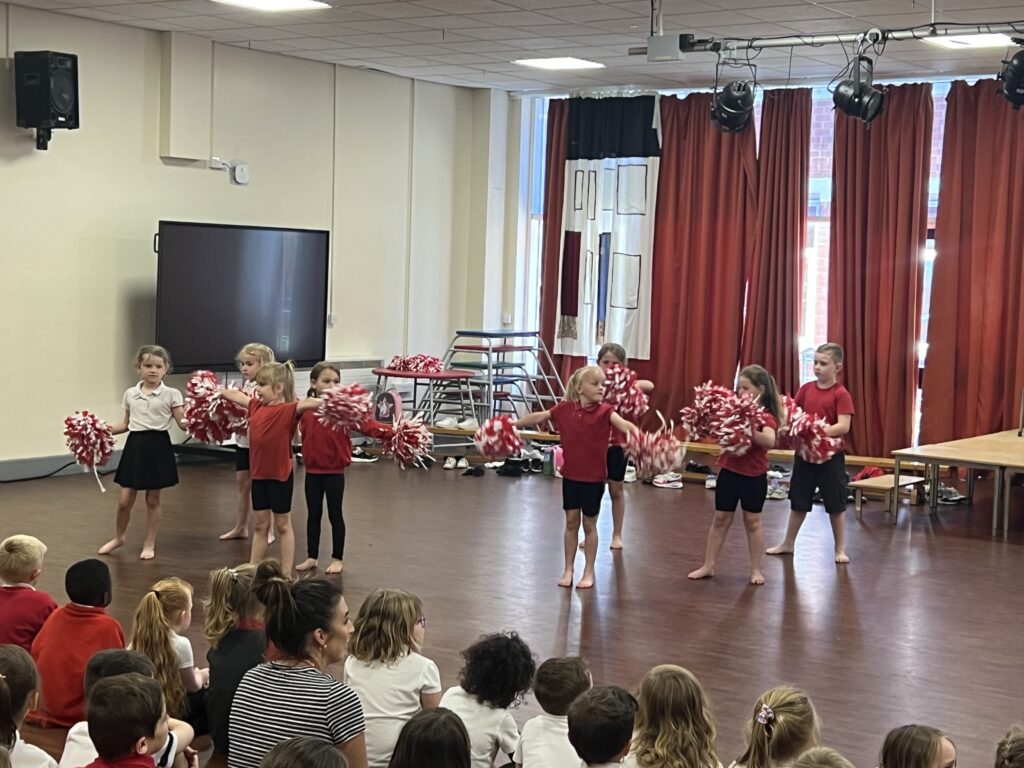
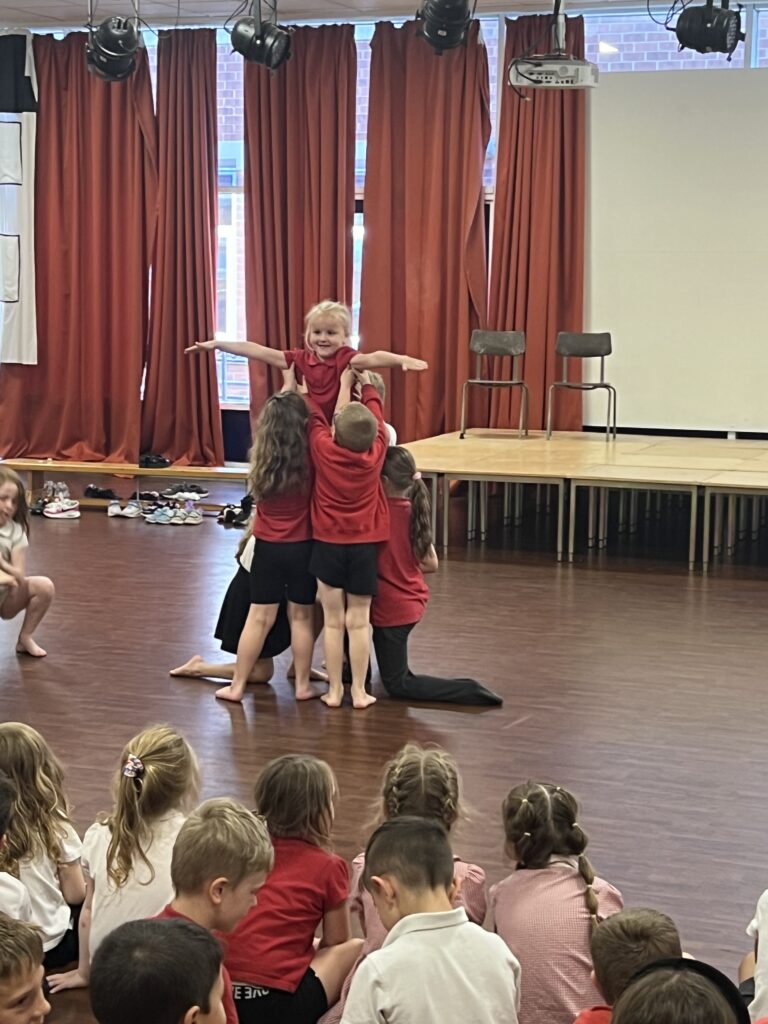
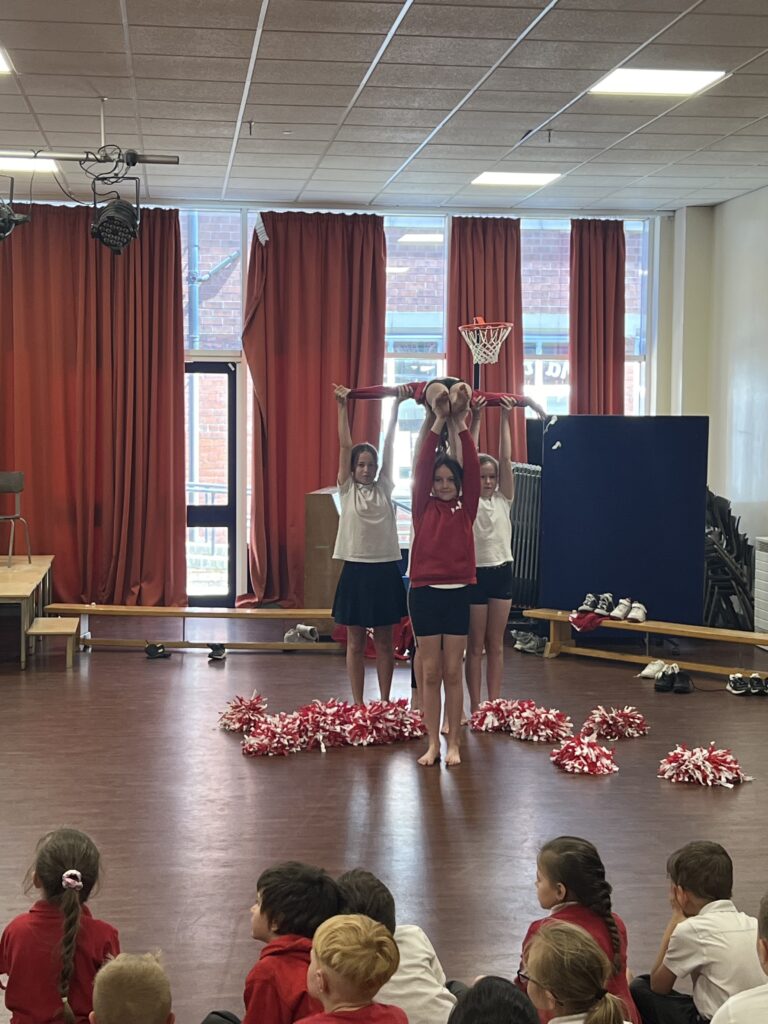
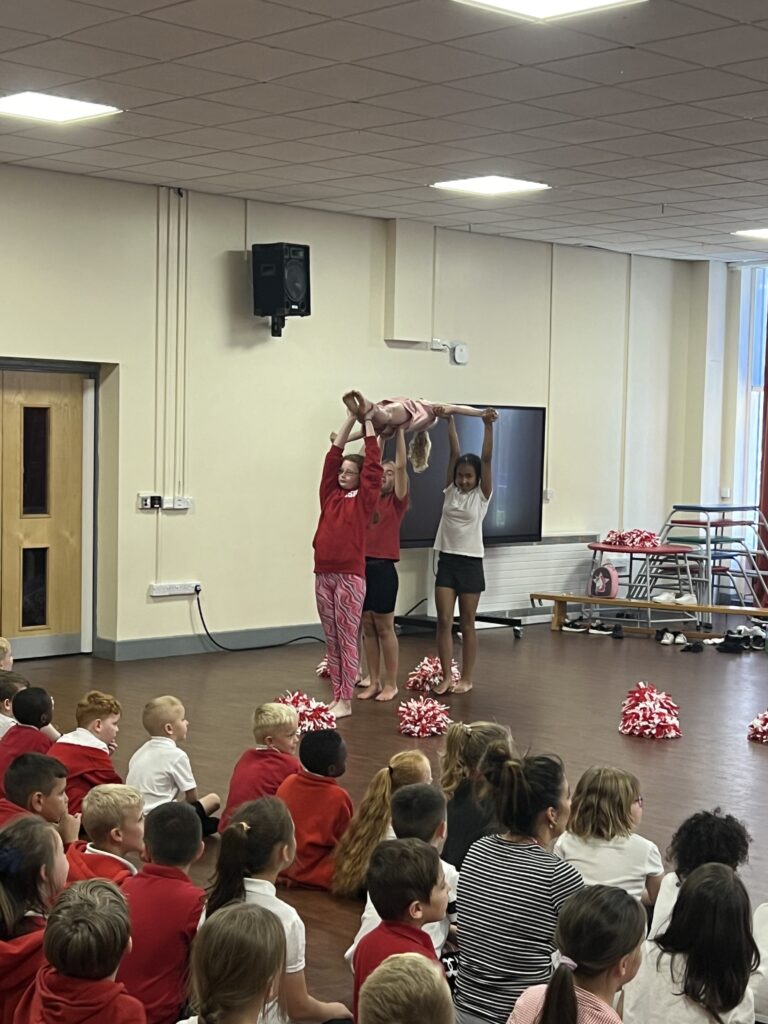
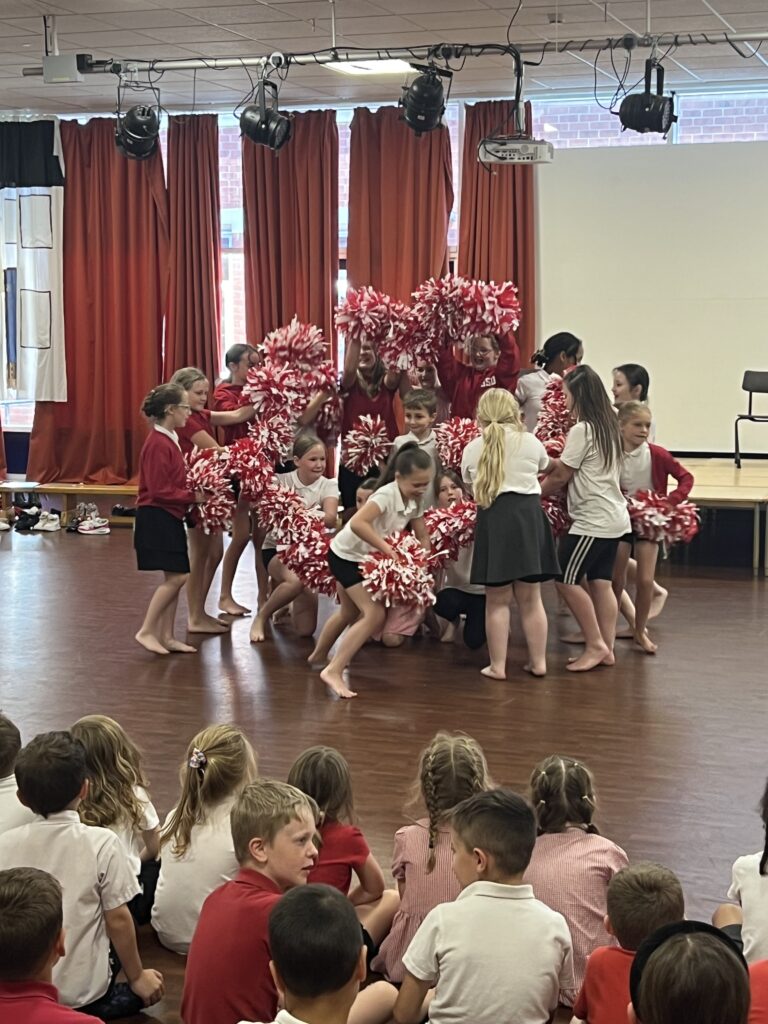
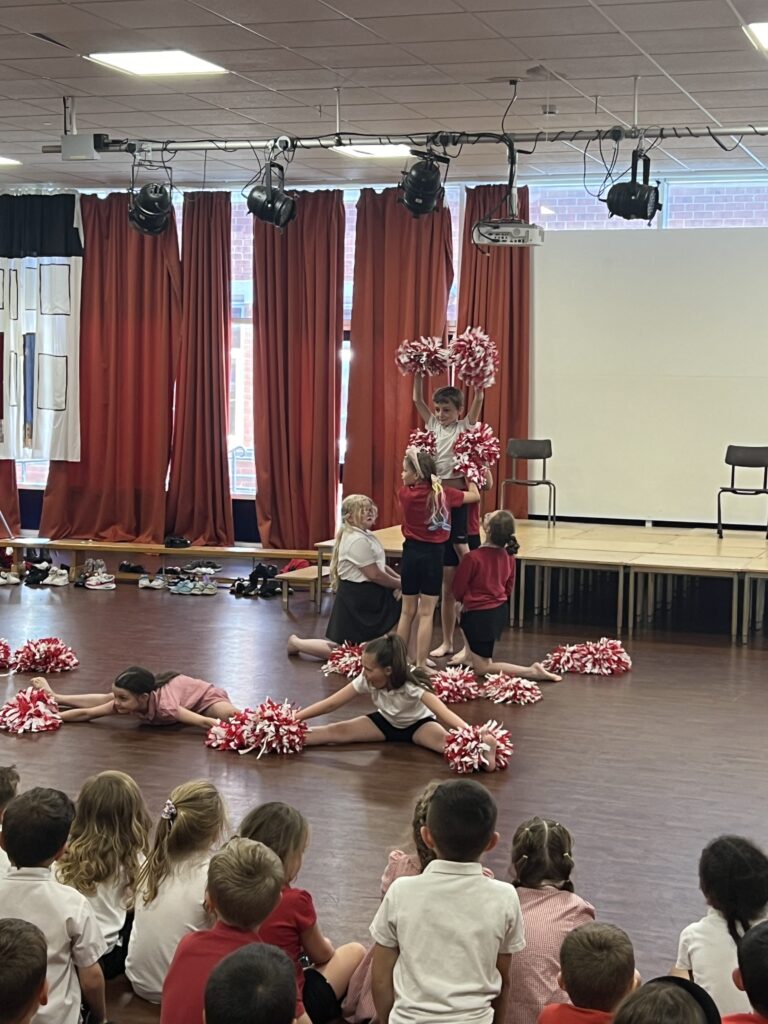
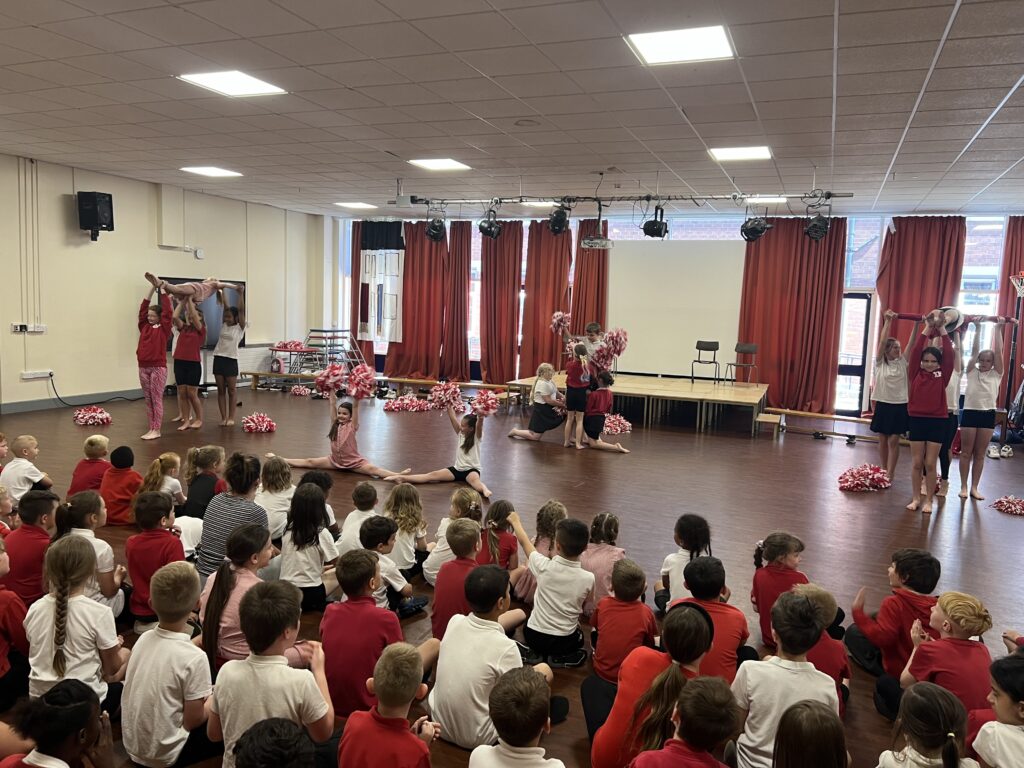
This week in Crew we have been exploring the importance of brushing our teeth, daily. We explored the effects of different drinks on our teeth by using eggs, the shell is similar to our tooth enamel. We placed an egg in water, dilute juice and a fizzy drink. We were shocked to see how the dilute juice impacted the egg shell, causing it to dissolve. This reiterated how important to brush our teeth twice a day, before bed and in the morning. It was fascinating to watch how the shells dissolved and made some really strange formations after just leaving it in the liquid for a day. Imagine not brushing your teeth for a day!
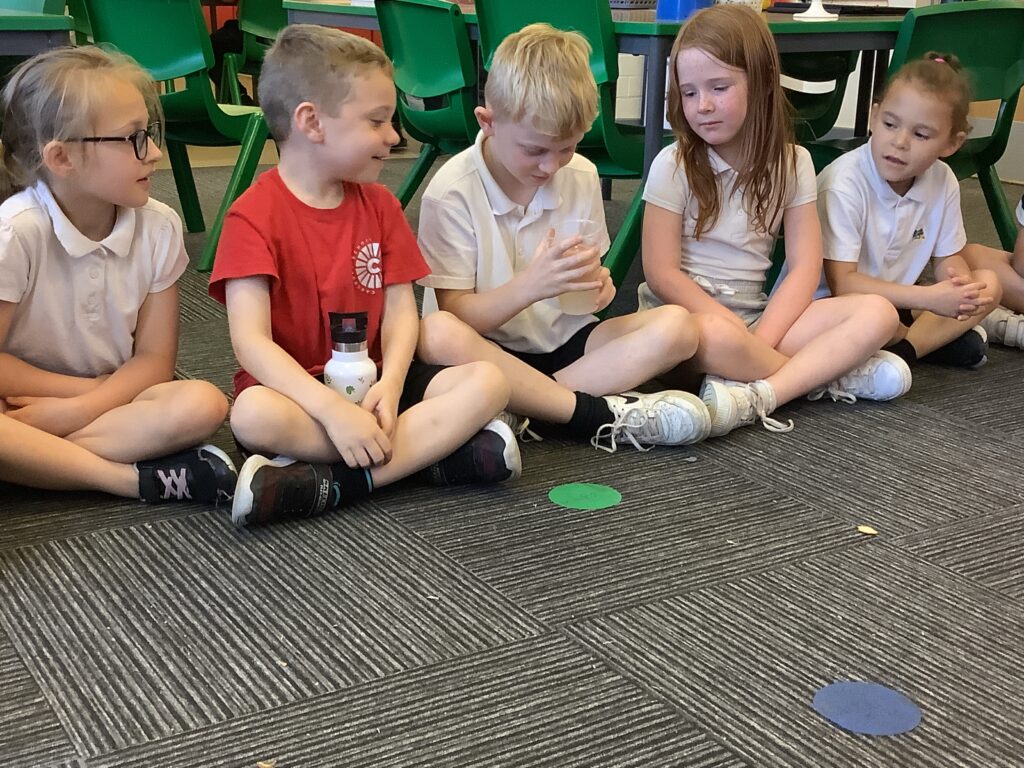
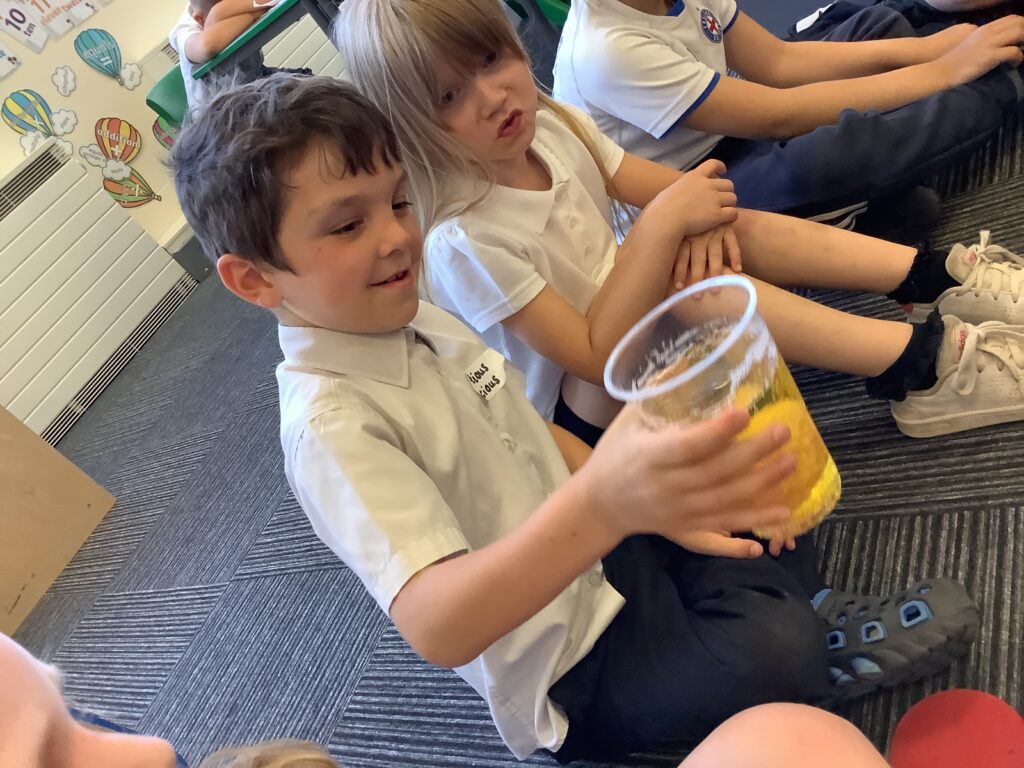
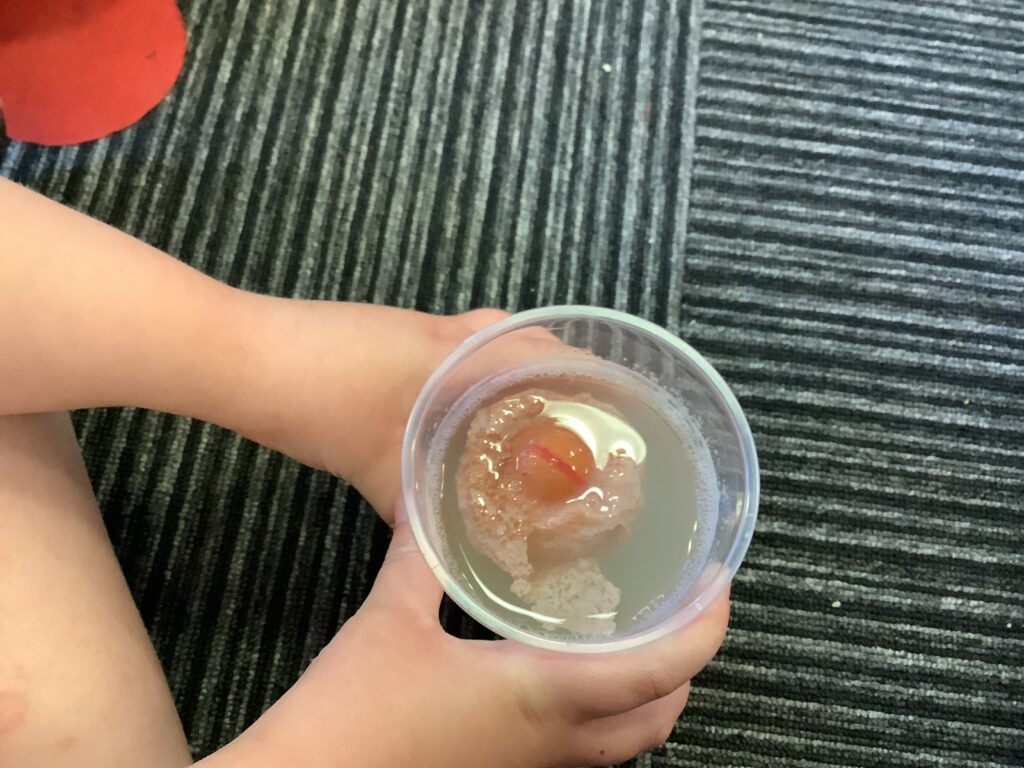
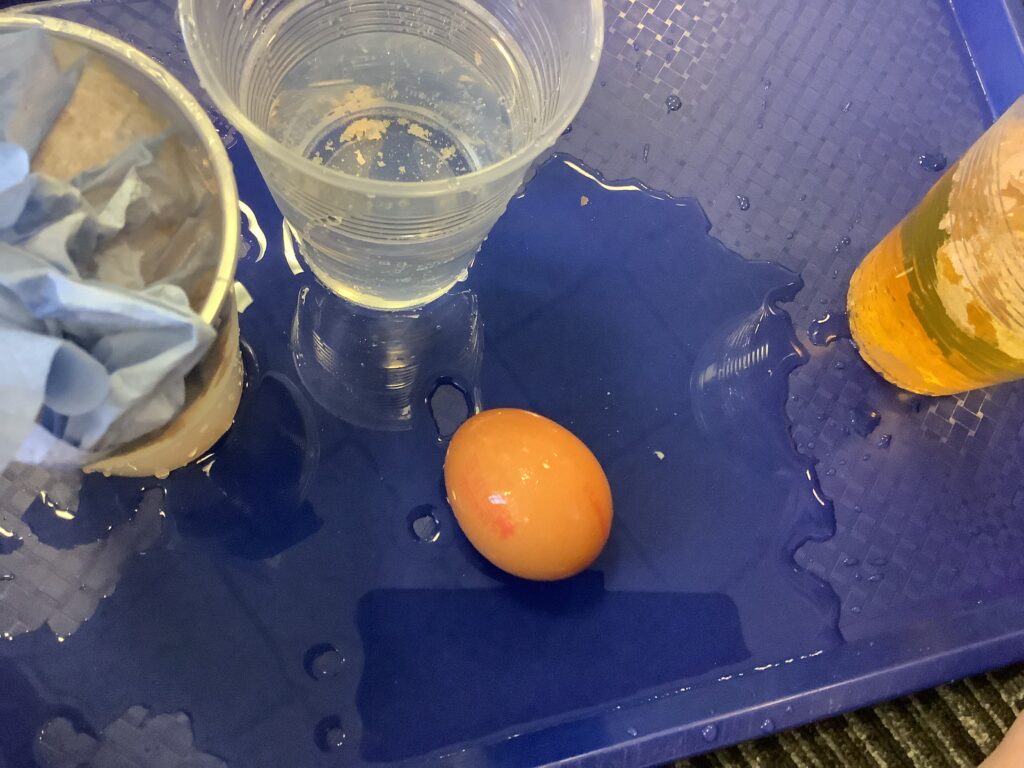
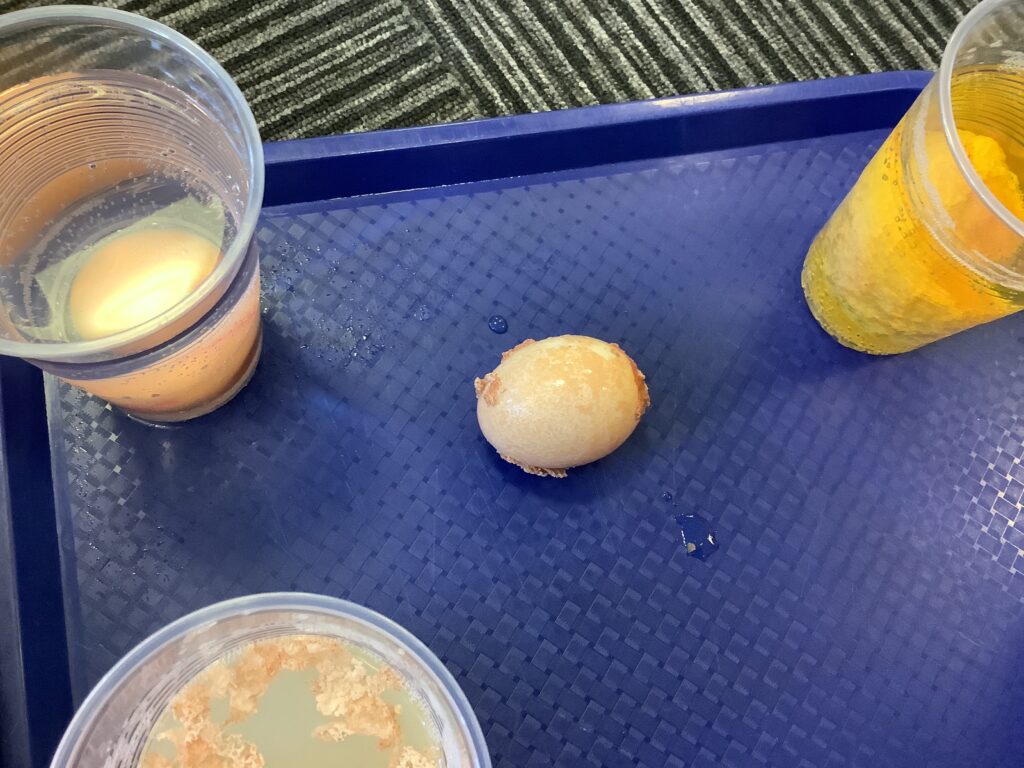
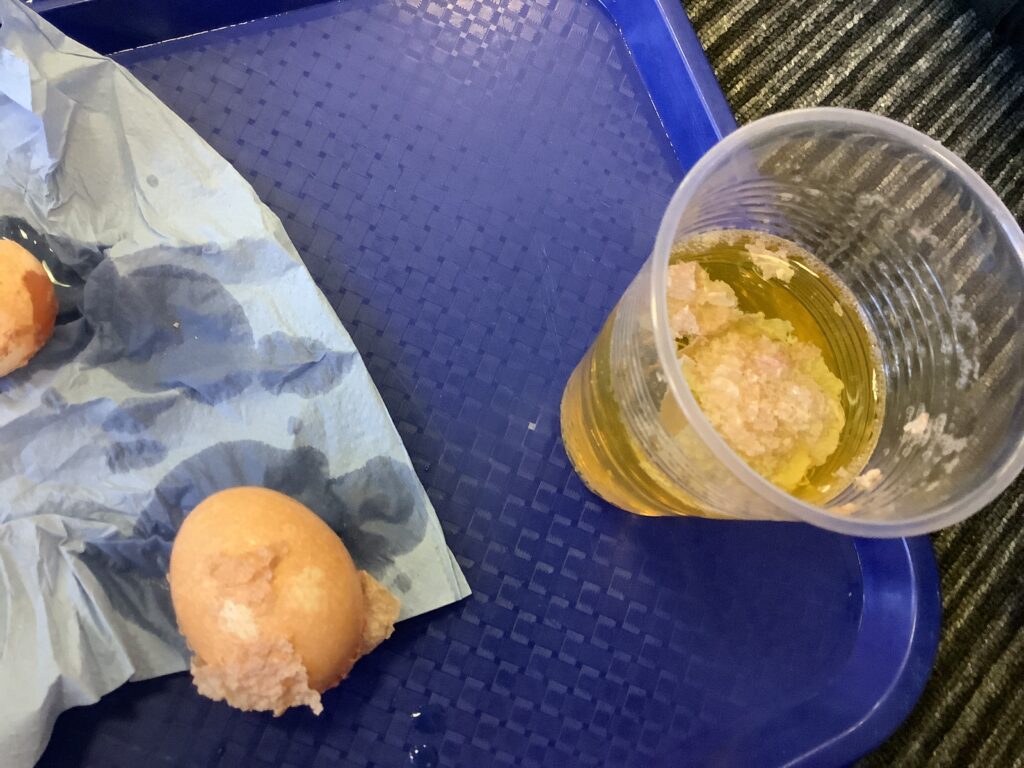
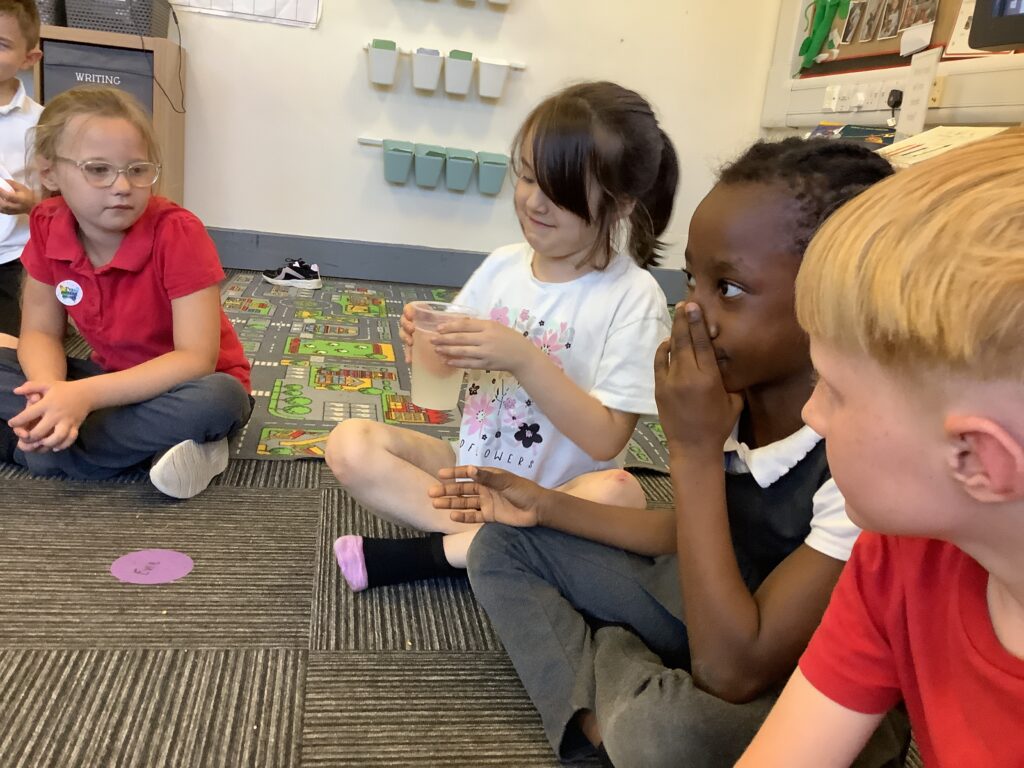
Yesterday in expedition, our case study three, Hinduism, we began looking at Rangoli patterns. Today we explored mixing primary, secondary and tertiary colours.
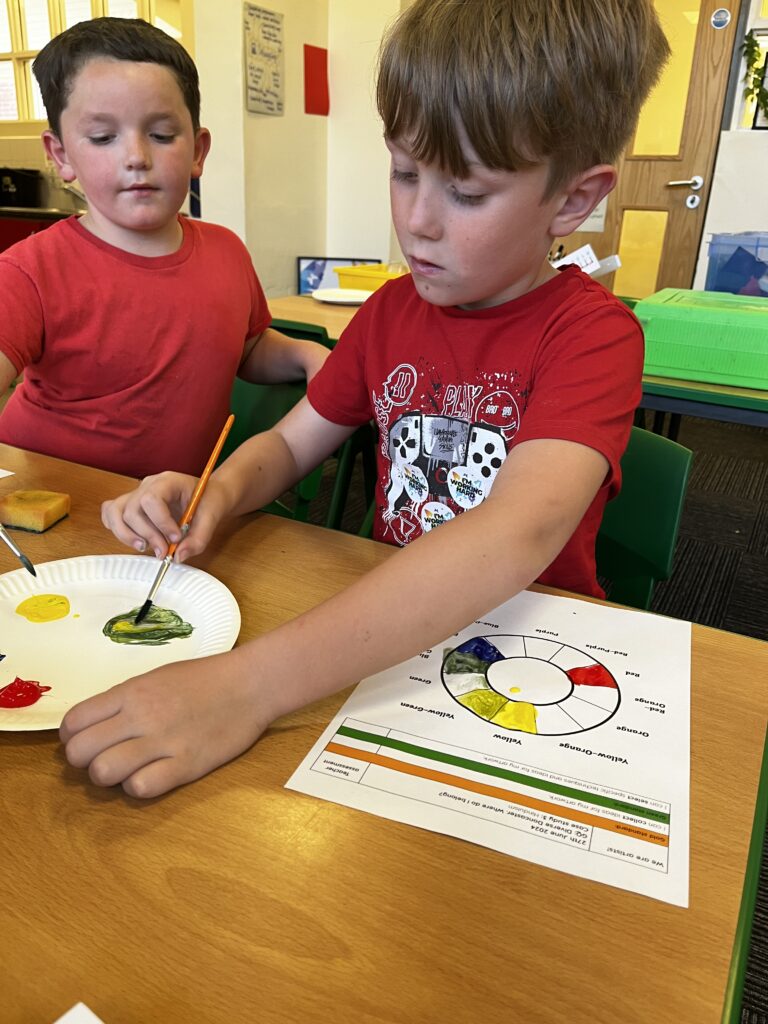
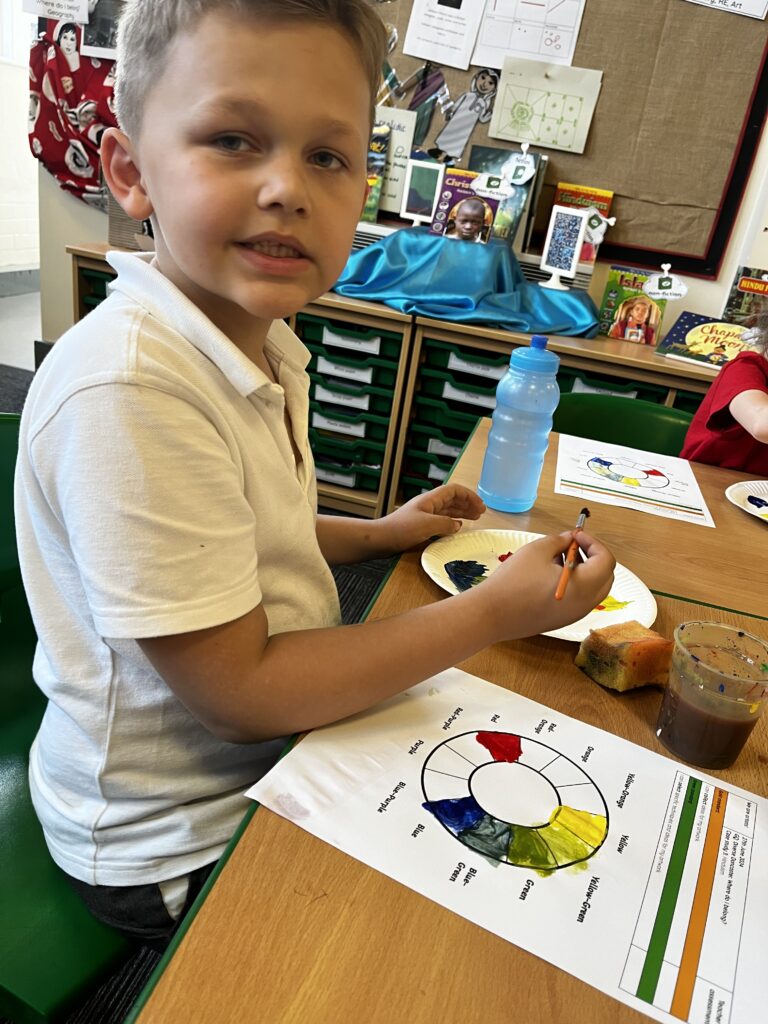
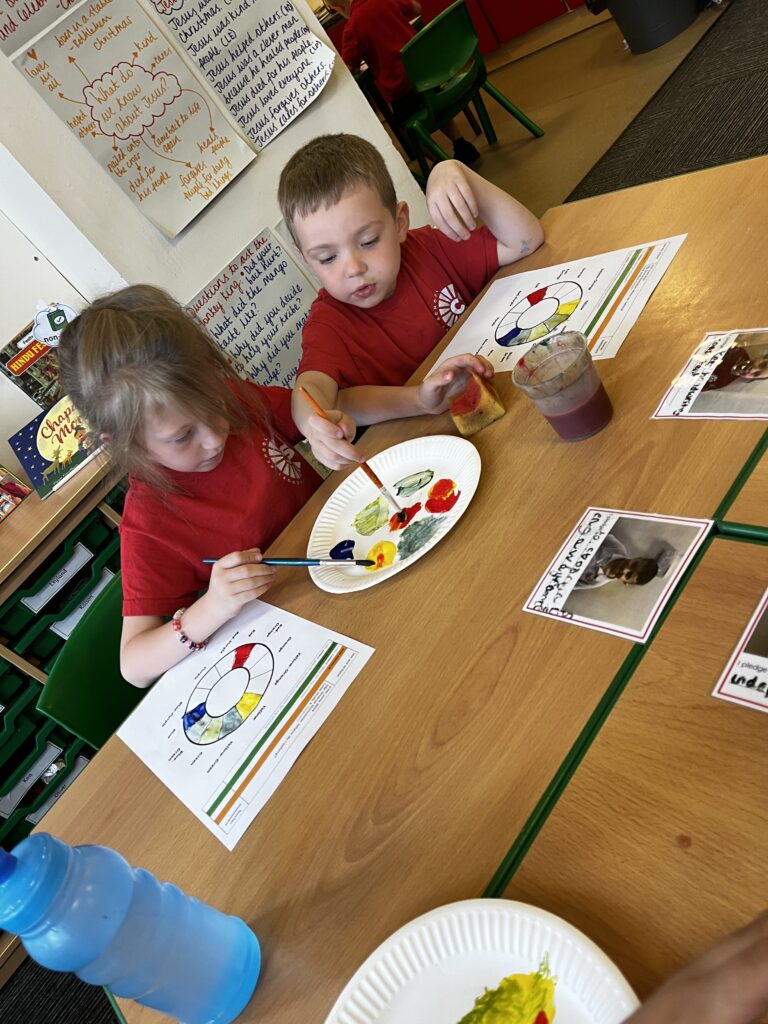
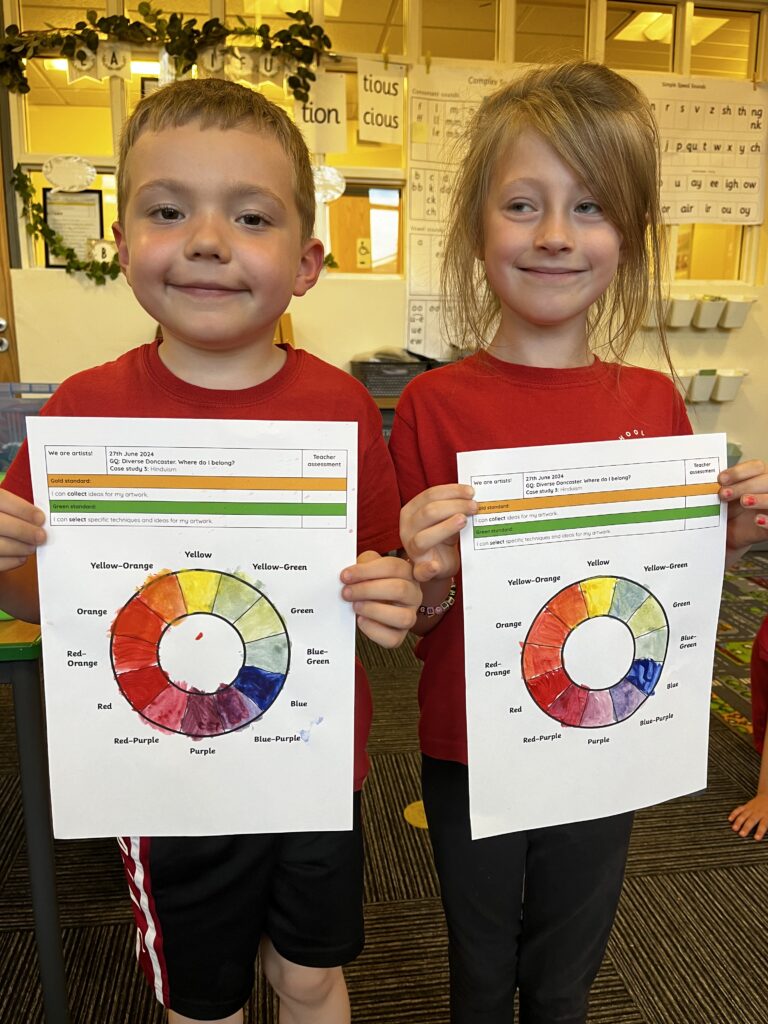
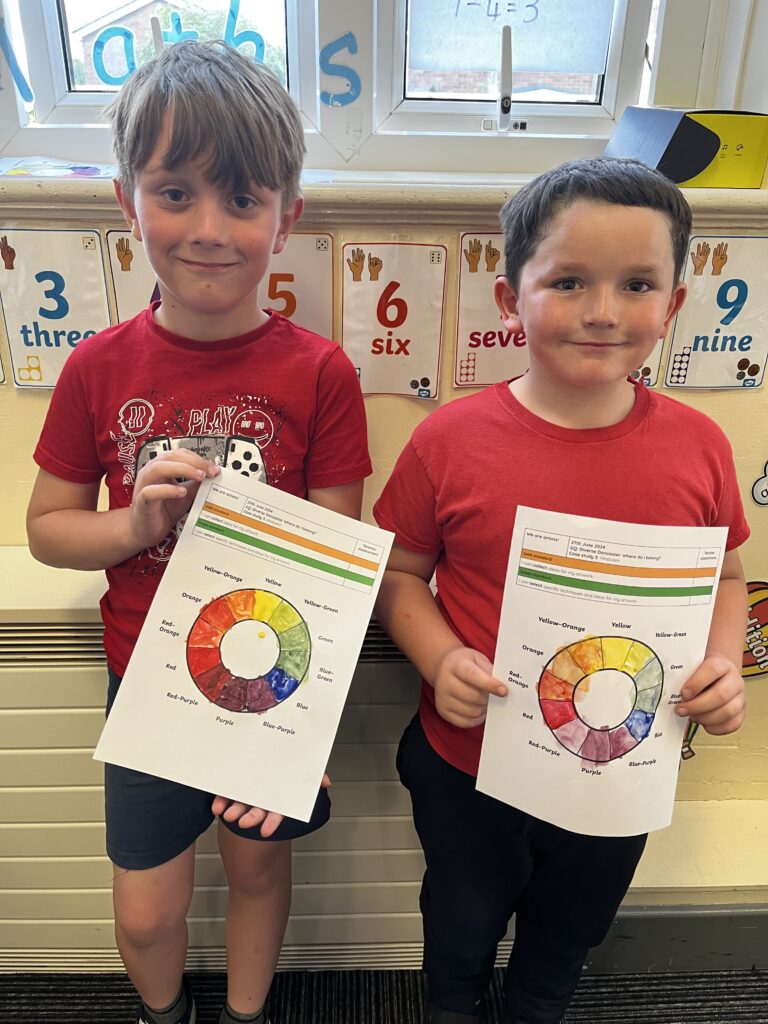
On Wednesday it was a lovely afternoon to play a game of cricket! We thoroughly enjoyed playing and displayed great sportsmanship, as always, against the 5 other schools. Preston stood out and was my player of the match! We all definitely showcased skills learnt in PE lessons!
Some lovely moments captured…
“Team work makes the dream work” – Preston
“As long as we try our best” – Alicia
“Believe in yourself” – Jude
Thats it for another year of sports tournaments – go team Carcroft!
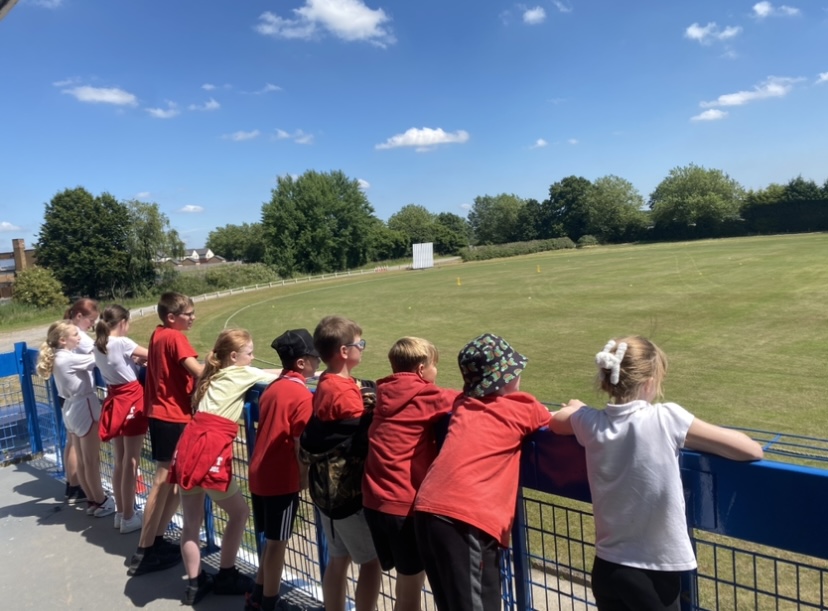
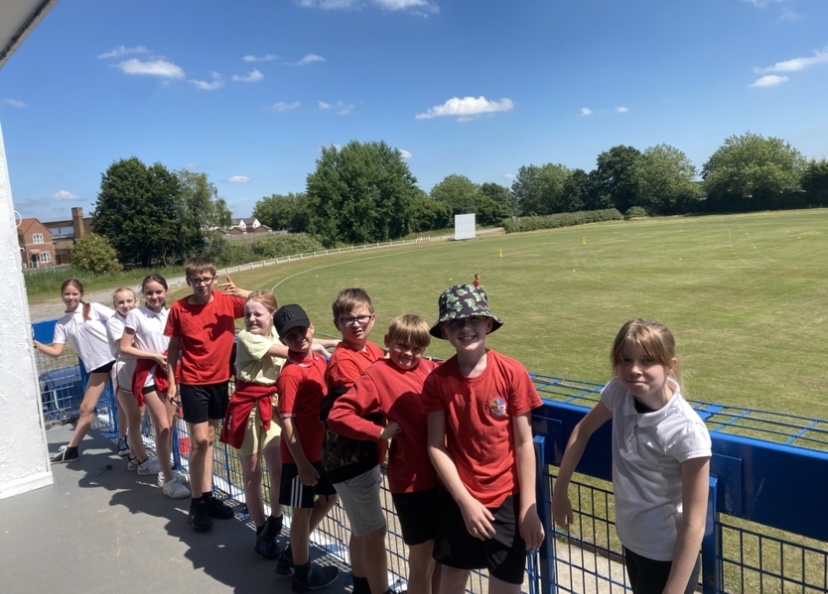
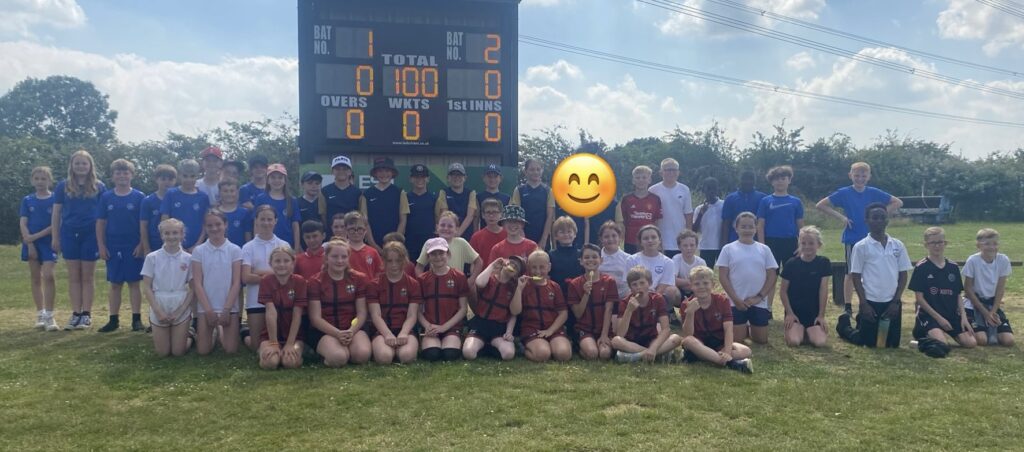
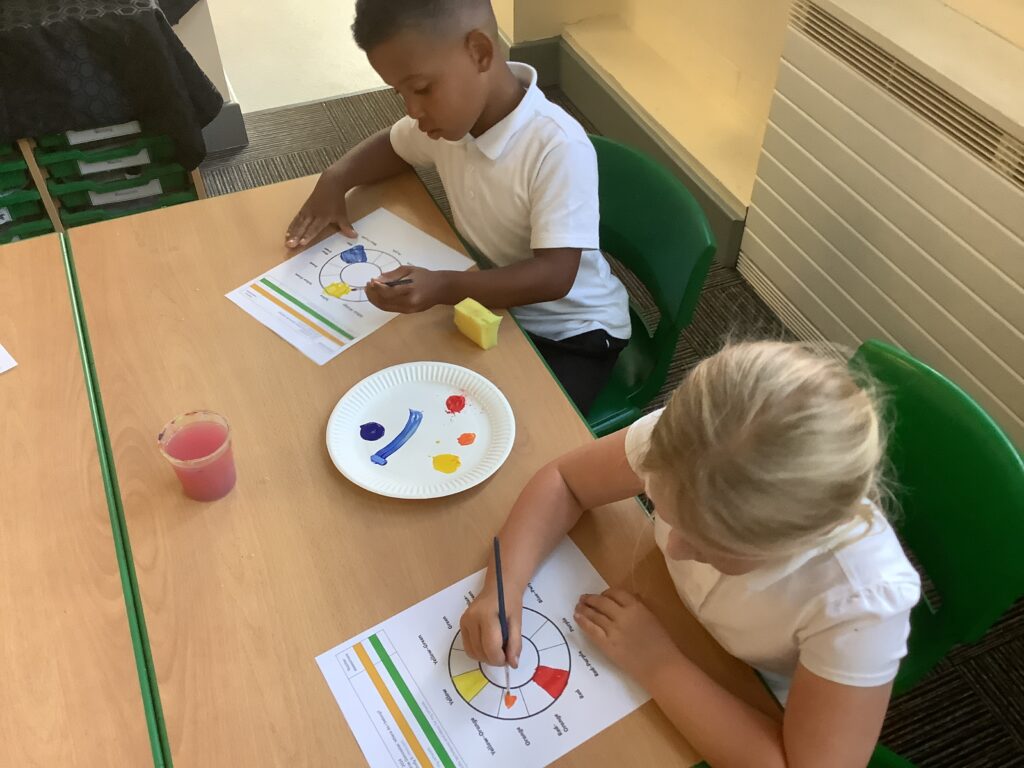
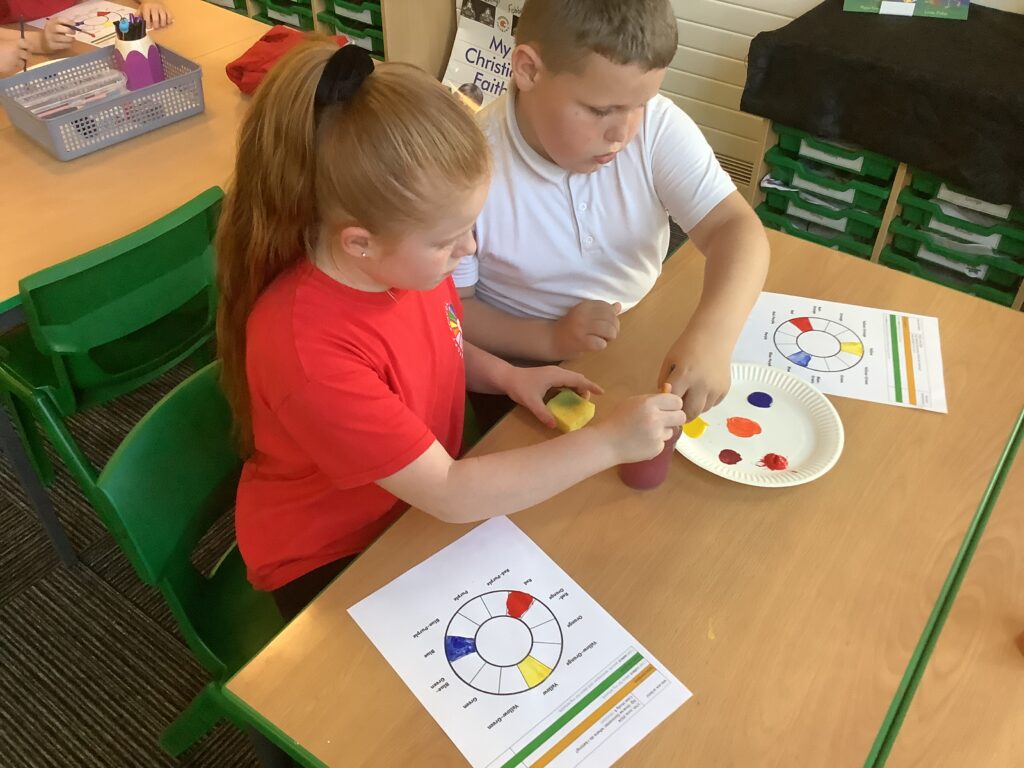
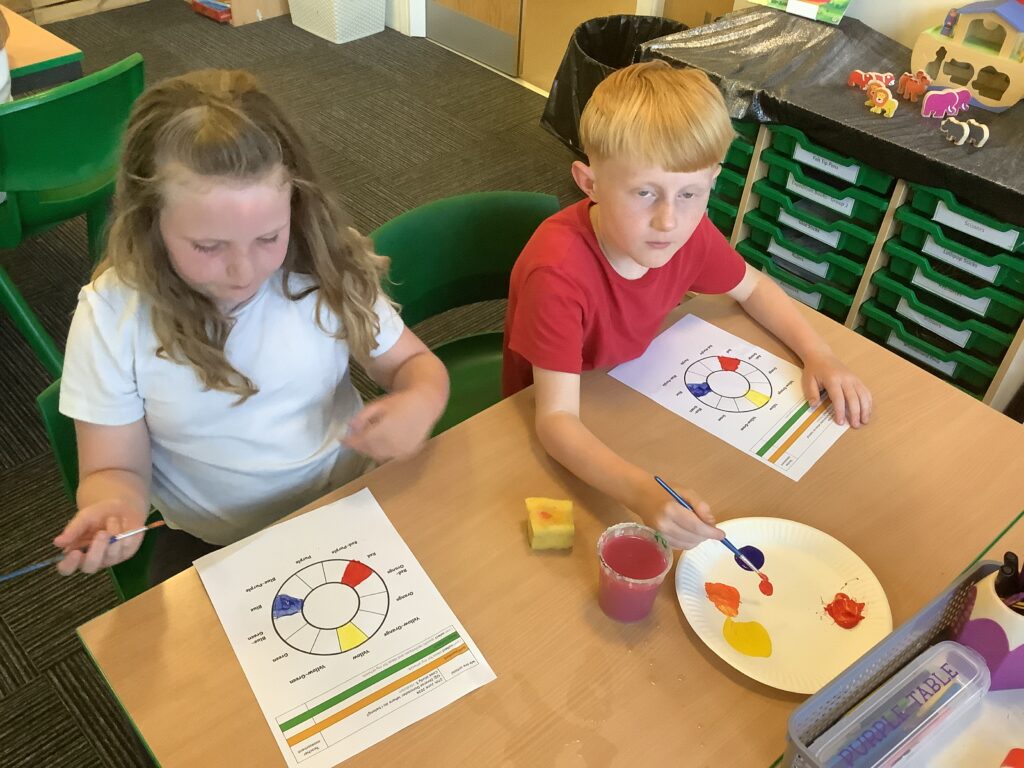
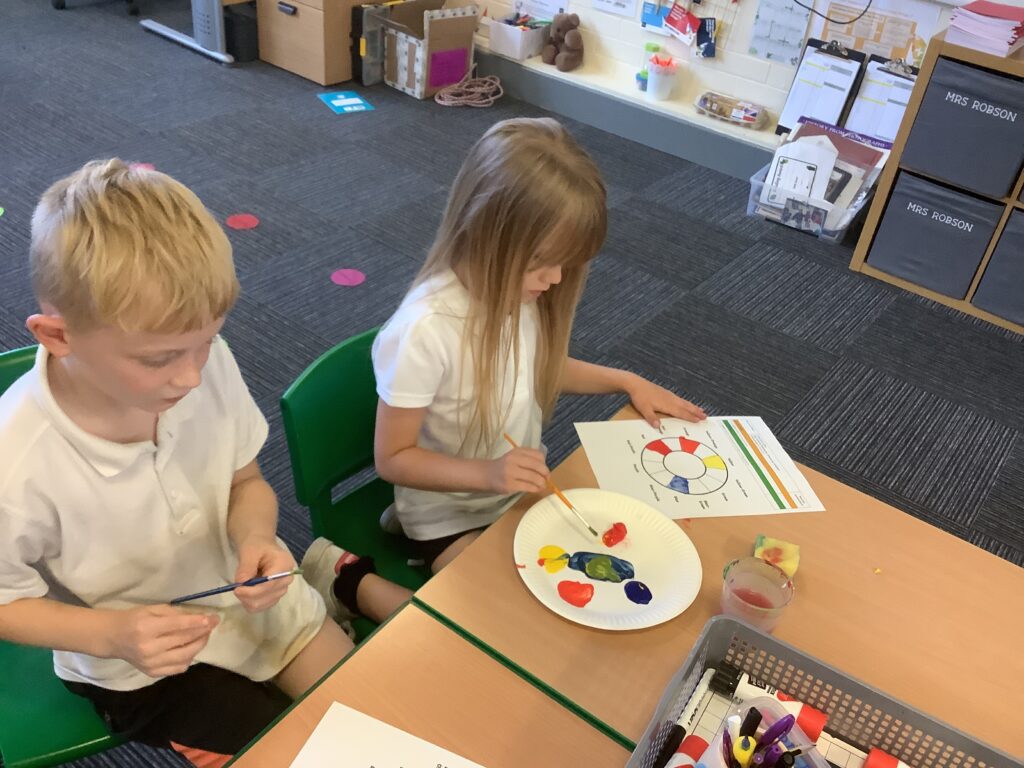
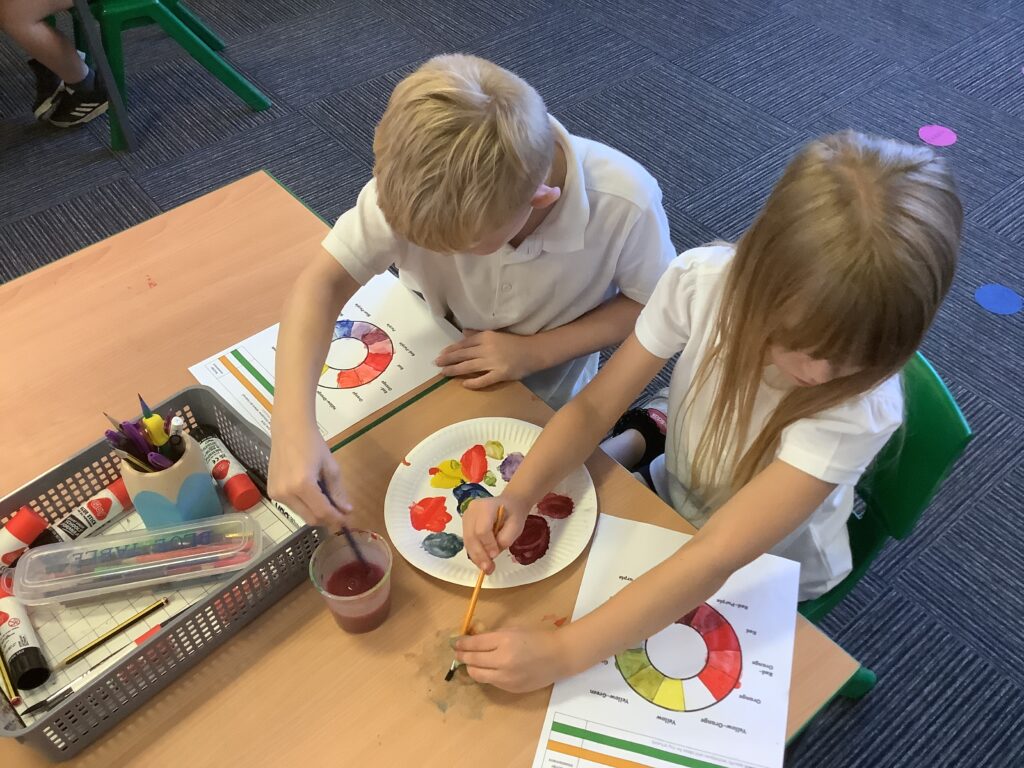
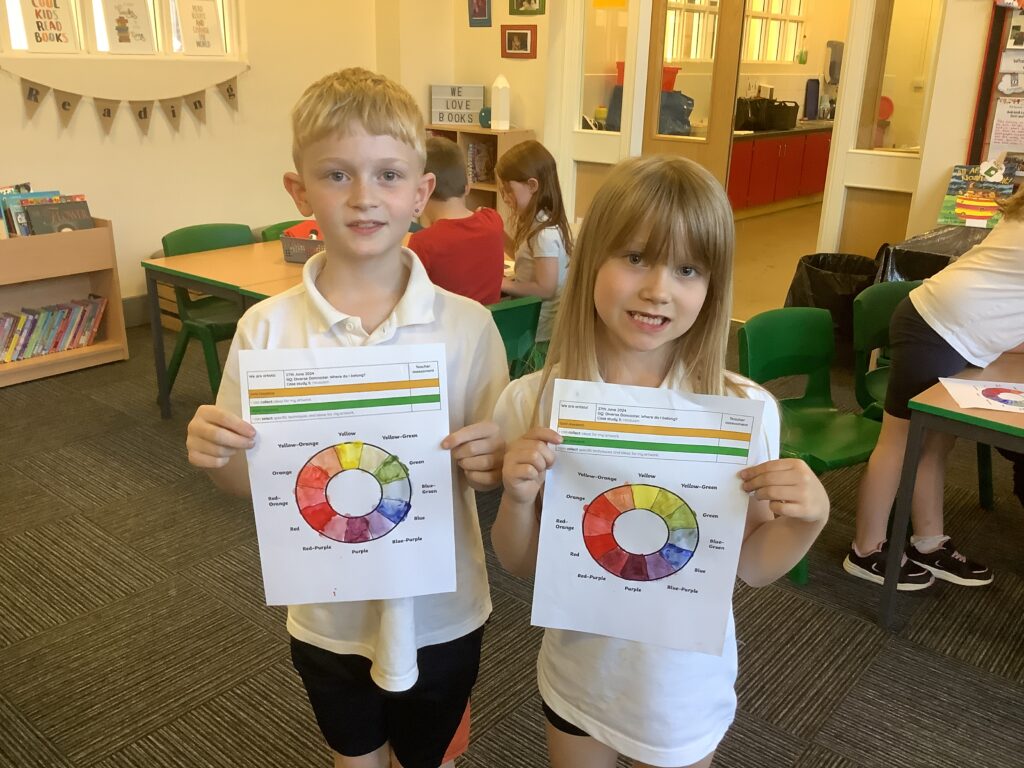
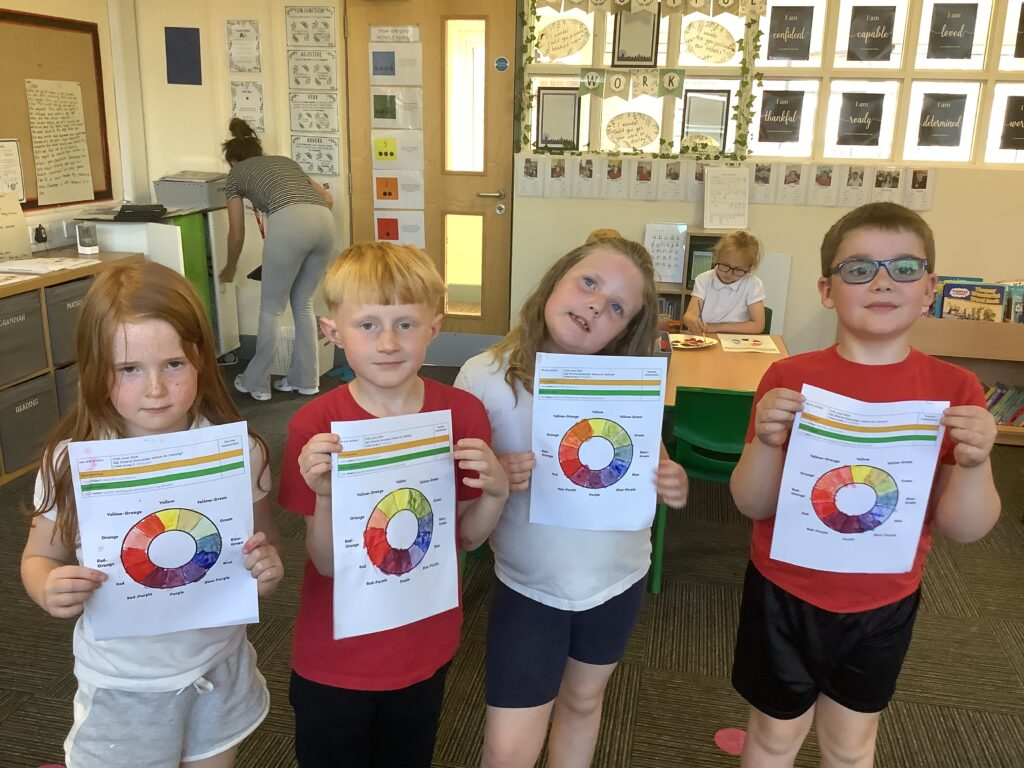
Yesterday in expedition we began looking at Rangoli patterns. Today we explored mixing primary, secondary and tertiary colours.